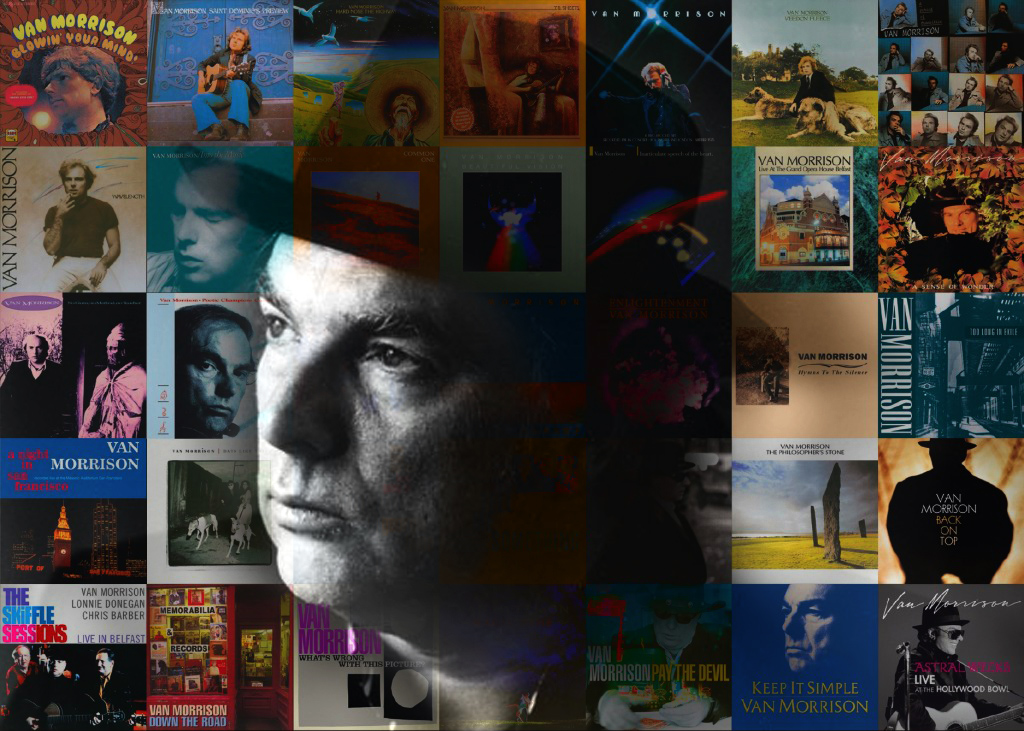
[vc_row][vc_column][vc_message message_box_style=”outline” icon_fontawesome=”fa fa-link” css_animation=”bounceIn”]
Check out:
[/vc_message][/vc_column][/vc_row]
[vc_row][vc_column][vc_message message_box_color=”mulled_wine” icon_fontawesome=”fa fa-quote-left”]the uniqueness of his vision is rooted in experiences that are common ones. He has freely admitted in song and in conversation that he doesn’t feel the need to know exactly what he is doing in the moment of creativity, or what the `meaning’ of such work might be, … As he once sang, `Enlightenment, don’t know what it is. Thus he is on a journey of discovery, down the road, and each fresh moment of performance has the potential to unlock another aspect not only of the song but of the experience that feeds and informs any given performance of it. As Morrison said in an interview for the BBC in 2006, `I don’t want to just sing a song … anyone can do that … something else has got to happen. He also noted that the moments of achievement or of breakthrough are fleeting glimpses (or we might say `beautiful visions, revealed then clouded over once more): `it’s momentary release … the minute it stops, it’s gone. It is this kind of detail which should give us pause to consider Morrison’s work..
–> Peter Mills (Hymns to the Silence: Inside the Words and Music of Van Morrison)[/vc_message][/vc_column][/vc_row]
To create this list we first created our individual top 50 lists and then merged them together. In order to make the final list more interesting and diverse, we restricted our individual lists to include a maximum of 4 songs from any album.
-Egil & Hallgeir
Spotify playlists at the end of the post.
[vc_row][vc_column][vc_message message_box_style=”outline” icon_fontawesome=”fa fa-link” css_animation=”bounceIn”]
Check out:
[/vc_message][/vc_column][/vc_row]
 – – [vc_row][vc_column][vc_message message_box_style=”outline” icon_fontawesome=”fa fa-link” css_animation=”bounceIn”] [/vc_message][/vc_column][/vc_row] |
#1 Madame George Producer: Lewis Merenstein Album: Astral Weeks (1968)[vc_row][vc_column][vc_message message_box_color=”mulled_wine” icon_fontawesome=”fa fa-quote-left”] ‘Madame George’ is a whirlpool of emotion and remembrance, of melancholy, joy and empathy. It’s like a beautiful dream that takes you back to a place of innocence and freedom and purity and possibility. Listening to ‘Madame George’ you can hear, you can even smell, those vast blue-sky days of your childhood. ‘Madame George’ is potent music. It’s the eye of Astral Weeks, an album that has been equalled but never bettered. … ‘Madame George’ is thick with atmosphere. The claustrophobia of Madame George’s house, the free air of the kids skipping stones and then it leads up to the coda where Morrison goes into a trance scatting “the love that loves to love” and he’s completely lost into that place beyond words, floating on Davis’ liquid bass lines. Neither Van Morrison nor anyone else has found their way back there.
|
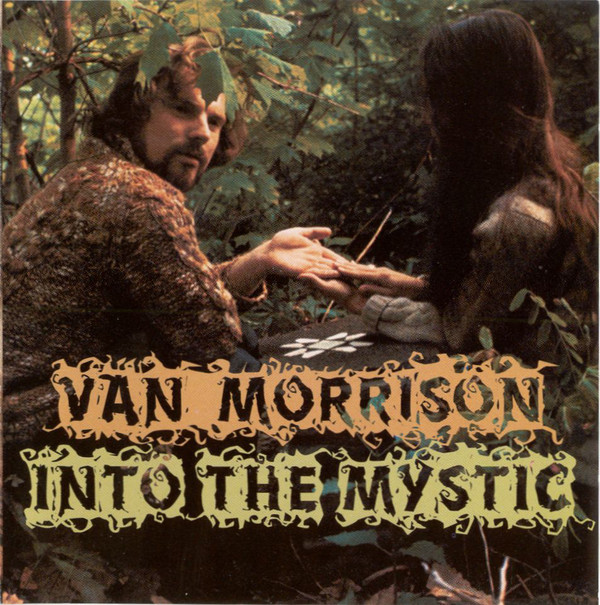 – – [vc_row][vc_column][vc_message message_box_style=”outline” icon_fontawesome=”fa fa-link” css_animation=”bounceIn”] [/vc_message][/vc_column][/vc_row] |
#2 Into the Mystic Producer: Van Morrison Album: Moondance (1970) [vc_row][vc_column][vc_message message_box_color=”mulled_wine” icon_fontawesome=”fa fa-quote-left”] “Into the Mystic” is the heart of Moondance; the music unfolds with a classic sense of timing, guitar strums fading into watery notes on a piano, the bass counting off the pace. The lines of the song and Morrison’s delivery of them are gorgeous: “I want to rock your gypsy soul/Just like in the days of old/And magnificently we will fold/Into the mystic.” The transcendent purity of the imagery seems to turn endlessly, giving back one’s own reflection.
|
–
 – – [vc_row][vc_column][vc_message message_box_style=”outline” icon_fontawesome=”fa fa-link” css_animation=”bounceIn”] [/vc_message][/vc_column][/vc_row] |
#3 And it stoned me Producer: Van Morrison Album: Moondance (1970) [vc_row][vc_column][vc_message message_box_color=”mulled_wine” icon_fontawesome=”fa fa-quote-left”] “I suppose I was about 12 years old. We used to go to a place called Ballystockart to fish. We stopped in the village on the way up to this place and I went to this little stone house, and there was an old man there with dark weather-beaten skin, and we asked him if he had any water. He gave us some water which he said he’d got from the stream. We drank some and everything seemed to stop for me. Time stood still. For five minutes everything was really quiet and I was in this ‘other dimension’. That’s what the song is about.”
|
–
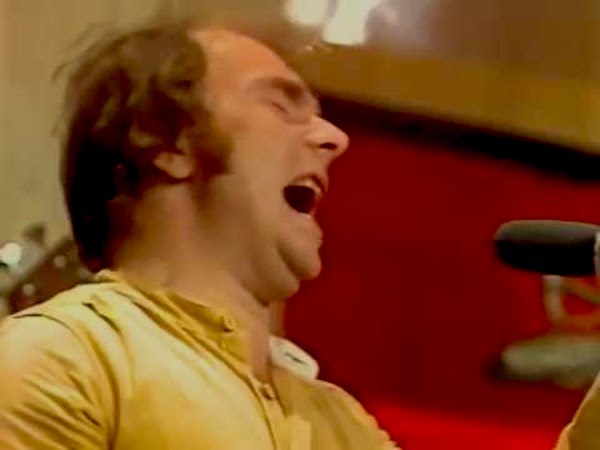 – – [vc_row][vc_column][vc_message message_box_style=”outline” icon_fontawesome=”fa fa-link” css_animation=”bounceIn”] [/vc_message][/vc_column][/vc_row] |
#4 Summertime in England Producer: Van Morrison Album: Common One (1980) [vc_row][vc_column][vc_message message_box_color=”mulled_wine” icon_fontawesome=”fa fa-quote-left”]Here, what dazzles about `Summertime In England’ is the way its tempo, lyrical focus and musical dynamics shift gear with an inner logic, like the light on a hillside as the sun is covered then revealed by fast-shifting clouds, and feeling just as natural, unforced and unstoppable.
|
–
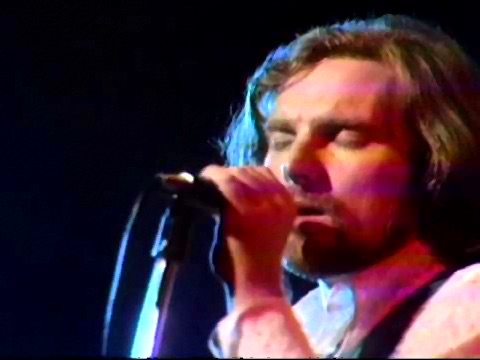 – – [vc_row][vc_column][vc_message message_box_style=”outline” icon_fontawesome=”fa fa-link” css_animation=”bounceIn”] [/vc_message][/vc_column][/vc_row] |
#5 Caravan Producer: Van Morrison Album: Moondance (1970) [vc_row][vc_column][vc_message message_box_color=”mulled_wine” icon_fontawesome=”fa fa-quote-left”] “I could hear the radio like it was in the same room. I don’t know how to explain it … How can you hear someone’s radio from a mile away, as if it was playing in your own house? So I had to put that into the song – it was a must.”
|
–
 – – [vc_row][vc_column][vc_message message_box_style=”outline” icon_fontawesome=”fa fa-link” css_animation=”bounceIn”] [/vc_message][/vc_column][/vc_row] |
#6 T.B. Sheets Producer: Bert Berns Album: Blowin’ Your Mind! (1967) [vc_row][vc_column][vc_message message_box_color=”mulled_wine” icon_fontawesome=”fa fa-quote-left”] “`TB Sheets’ is 9.36 of pure performed claustrophobia and clammy, cold, white-hot panic. Randy Newman referred to this song as one of his favourite vocal performances, referring to the `early great acting job he [Morrison] did on that song”‘ In this Newman opens up a question as to the nature of performance itself, live or in the studio, but it is beyond dispute that `acting job’ or not Morrison’s performance on and of `TB Sheets’ here is something unlike almost anything else you’ll hear.”
|
–
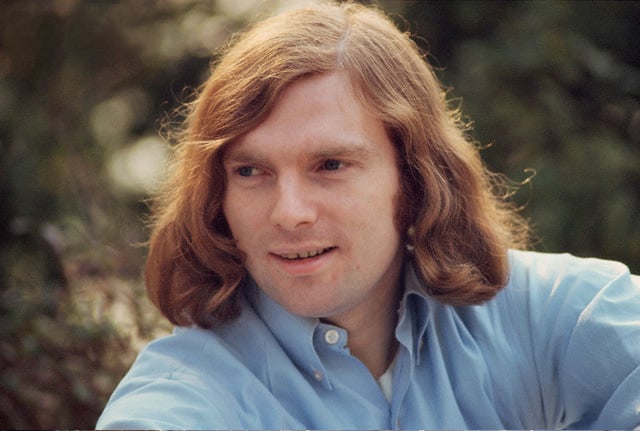 – – [vc_row][vc_column][vc_message message_box_style=”outline” icon_fontawesome=”fa fa-link” css_animation=”bounceIn”] [/vc_message][/vc_column][/vc_row] |
#7 Astral Weeks Producer: Lewis Merenstein Album: Astral Weeks (1968) [vc_row][vc_column][vc_message message_box_color=”mulled_wine” icon_fontawesome=”fa fa-quote-left”] Back in 1966, Morrison visited the Belfast, Ireland, home of his friend, painter Cecil McCartney. He’d been working on some paintings themed around astral projection, and they caught the singer’s eye; he’d go on to translate the visuals into a song.
|
–
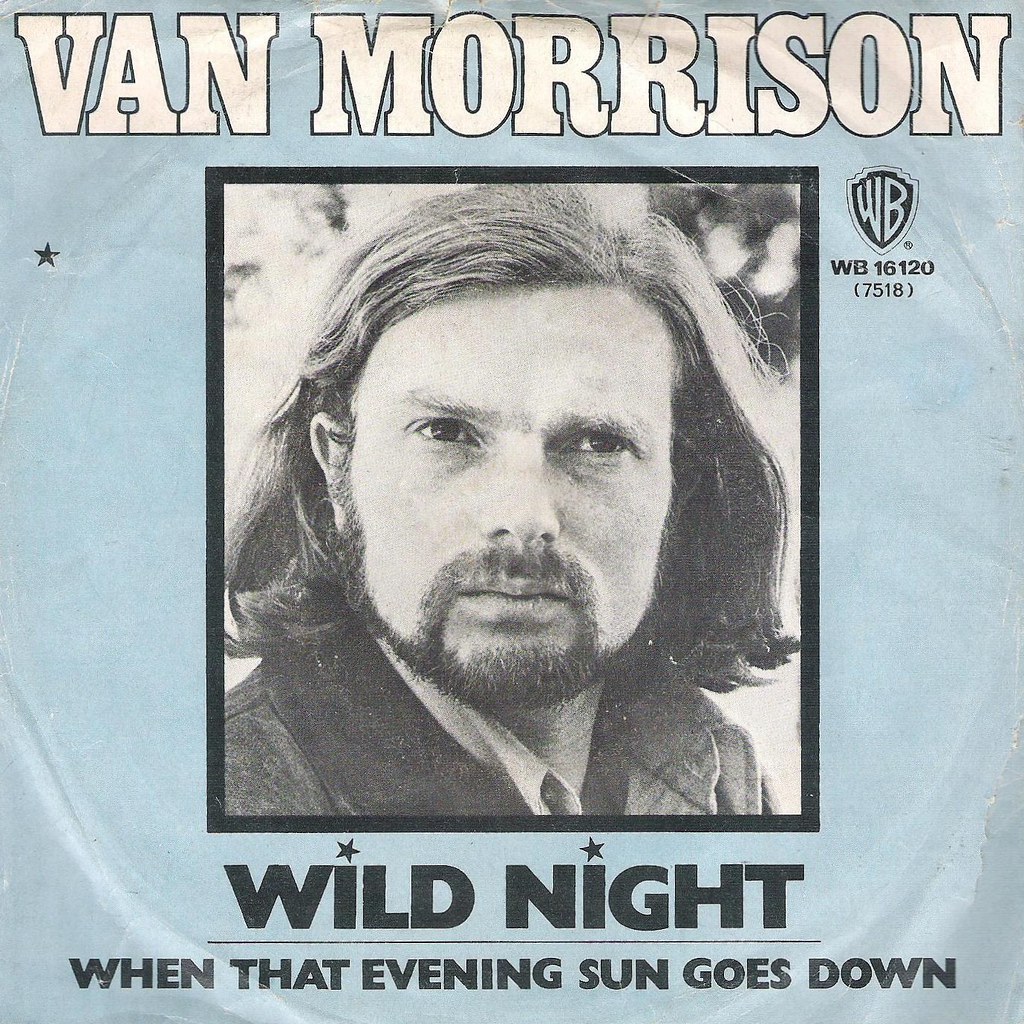 – – [vc_row][vc_column][vc_message message_box_style=”outline” icon_fontawesome=”fa fa-link” css_animation=”bounceIn”] [/vc_message][/vc_column][/vc_row] |
#8 Wild Night Producer: Van Morrison, Ted Templeman Album: Tupelo Honey (1971) [vc_row][vc_column][vc_message message_box_color=”mulled_wine” icon_fontawesome=”fa fa-quote-left”] “Recorded live in the studio (as all Morrison’s albums are), it sounds intricately layered, highly sophisticated by 2007’s standards, like speeded-up Steely Dan meets Allen Toussaint. It’s fluid but meticulous; ultra-rehearsed but effortless. It promises a party to come.”
|
–
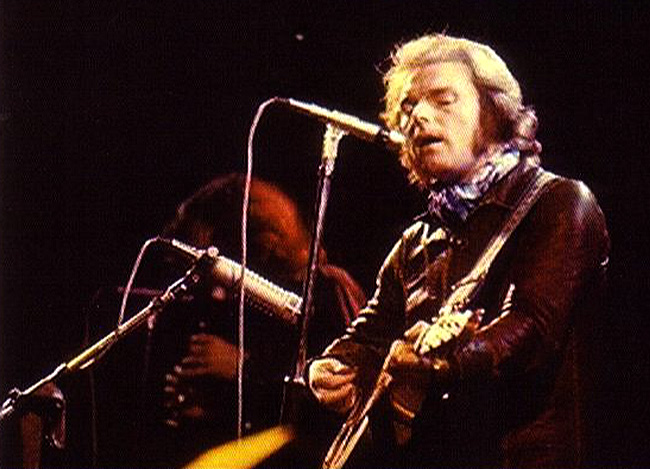 – – [vc_row][vc_column][vc_message message_box_style=”outline” icon_fontawesome=”fa fa-link” css_animation=”bounceIn”] [/vc_message][/vc_column][/vc_row] |
#9 Streets of Arklow Producer: Van Morrison Album: Veedon Fleece (1974) [vc_row][vc_column][vc_message message_box_color=”mulled_wine” icon_fontawesome=”fa fa-quote-left”] “…Veedon Fleece is a masterpiece, one that feels like an attempt to be Astral Weeks on side one and Moondance on side two, an audacious ambition if ever there was one. Its first side is perhaps the best 25 minutes of music he ever assembled (Fair Play, Linden Arden Stole the Highlights, Who Was That Masked Man?, Streets of Arklow, You Don’t Pull No Punches But You Don’t Push the River)…”
|
–
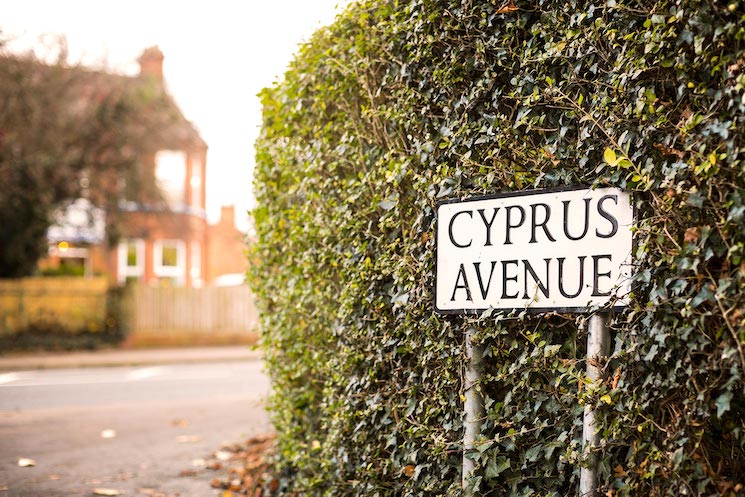 – – [vc_row][vc_column][vc_message message_box_style=”outline” icon_fontawesome=”fa fa-link” css_animation=”bounceIn”] [/vc_message][/vc_column][/vc_row] |
#10 Cyprus Avenue Producer:Lewis Merenstein Album: Astral Weeks (1968) [vc_row][vc_column][vc_message message_box_color=”mulled_wine” icon_fontawesome=”fa fa-quote-left”] Van Morrison’s 1968 album Astral Weeks has long been considered one of the greatest recordings of the rock era, and “Cyprus Avenue” is its central song. Like the other songs on Astral Weeks, it has an unusual musical arrangement. Built out of a basic blues structure, it features Morrison on acoustic guitar, Richard Davis on acoustic bass, a flute, a harpsichord, and strings. Davis improvises like the jazz musician he is, and the harpsichord and strings, which are overdubs arranged by conductor Jimmy Fallon, follow his lead, adding their own lines instead of merely supporting the melody. The result is a chamber-music hybrid of folk-blues, jazz, and classical music, and over it Morrison sings a meditative memory lyric about his adolescence in Belfast, Northern Ireland. Cyprus Avenue is a residential street in that city, not far geographically, but a considerable distance economically, from the working-class Hyndford Street where Morrison grew up. ..
|
–
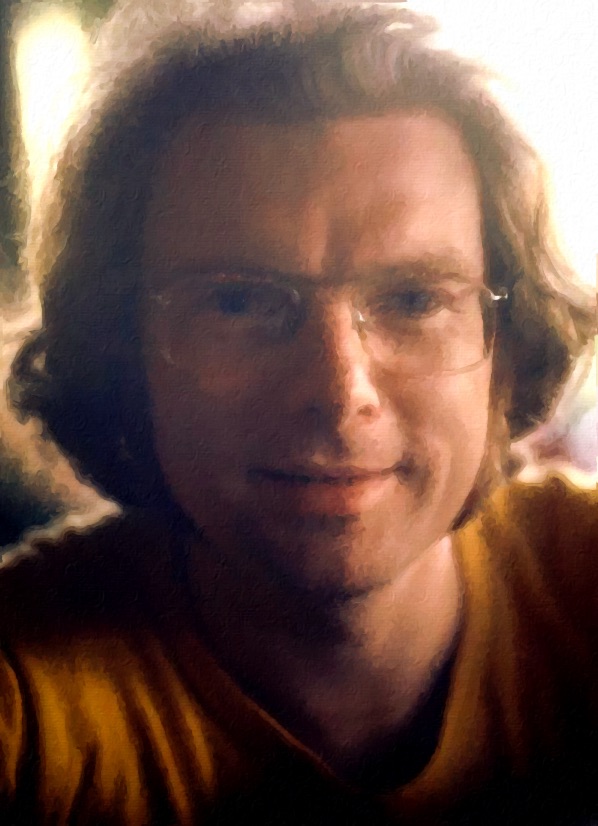 – – [vc_row][vc_column][vc_message message_box_style=”outline” icon_fontawesome=”fa fa-link” css_animation=”bounceIn”] [/vc_message][/vc_column][/vc_row] |
#11 You Don’t Pull No Punches, but You Don’t Push the River Producer: Van Morrison Album: Veedon Fleece (1974) [vc_row][vc_column][vc_message message_box_color=”mulled_wine” icon_fontawesome=”fa fa-quote-left”] “Morrison’s most accomplished composition to date, an experimental peak which took a step beyond even his most ambitious work.”
|
–
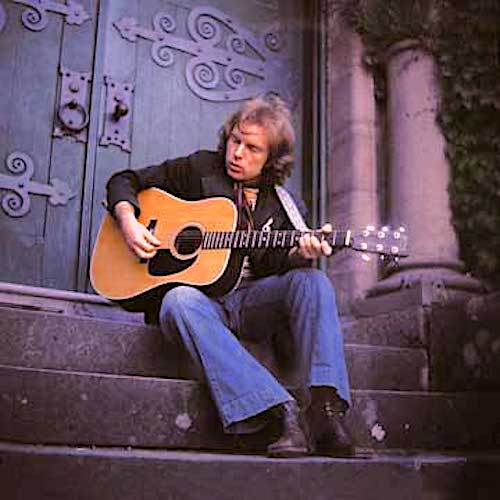 – – [vc_row][vc_column][vc_message message_box_style=”outline” icon_fontawesome=”fa fa-link” css_animation=”bounceIn”] [/vc_message][/vc_column][/vc_row] |
#12 Saint Dominic’s Preview Producer: Ted Templeman, Van Morrison Album: Saint Dominic’s Preview (1972) [vc_row][vc_column][vc_message message_box_color=”mulled_wine” icon_fontawesome=”fa fa-quote-left”] “The song was stirring. It was exhilarating. The singer’s commitment to his every word passed over to the listener even if the listener had never wasted a thought on Northern Ireland; there was a sense of engaging with the world on your own terms. As the scene shifted from Belfast to San Francisco to New York, shifted in phrases that barely made more narrative than a single word, as the story went from people being shot down in one street to people looking away from others as they walked down another to a rock ’n’ roll singer at a party to promote his new album, what could have been felt as a slide from the profound to the trivial remained a story that stayed on its feet, that surrendered not a single measure of moral right from one side of the story to the other. When the song ended, you could feel you’d been around the world.”
|
–
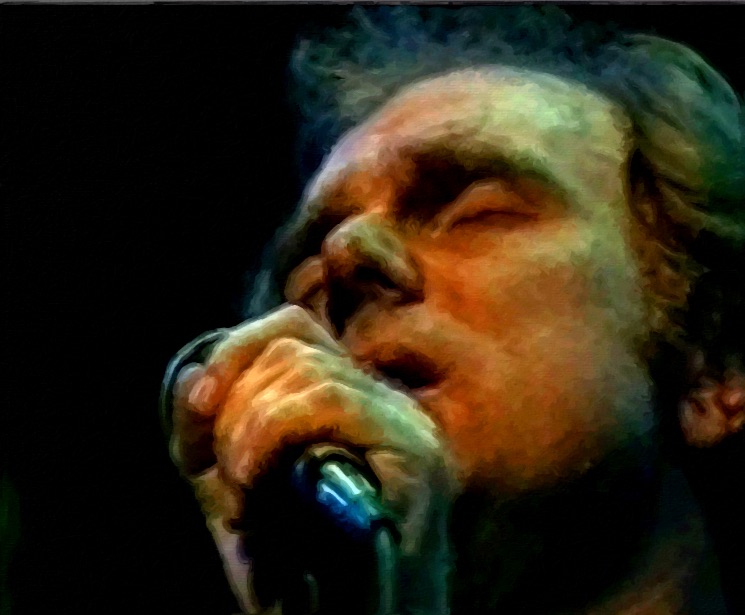 – – [vc_row][vc_column][vc_message message_box_style=”outline” icon_fontawesome=”fa fa-link” css_animation=”bounceIn”] [/vc_message][/vc_column][/vc_row] |
#13 In The Garden Producer: Van Morrison Album: No Guru, No Method, No Teacher (1986) [vc_row][vc_column][vc_message message_box_color=”mulled_wine” icon_fontawesome=”fa fa-quote-left”] “There’s a song on the album called ‘In the Garden‘ where I take you through the meditation program. From about half way through the song until the end. But I take you through a definite meditation process, which is a form of transcendental meditation. It’s not TM. So forget about that. That takes you right from the middle to the end. and if you listen to the thing carefully, you should have gotten yourself some sort of tranquillity by the time you get to the end. So when this happens in the song, I say, ‘And I turn to you and I said, ‘No Guru, No Method, No Teacher. Just you and I and nature, and the Father and the Son, and the Holy Ghost.” So really – you have to do the whole line to know what it means.”
|
–
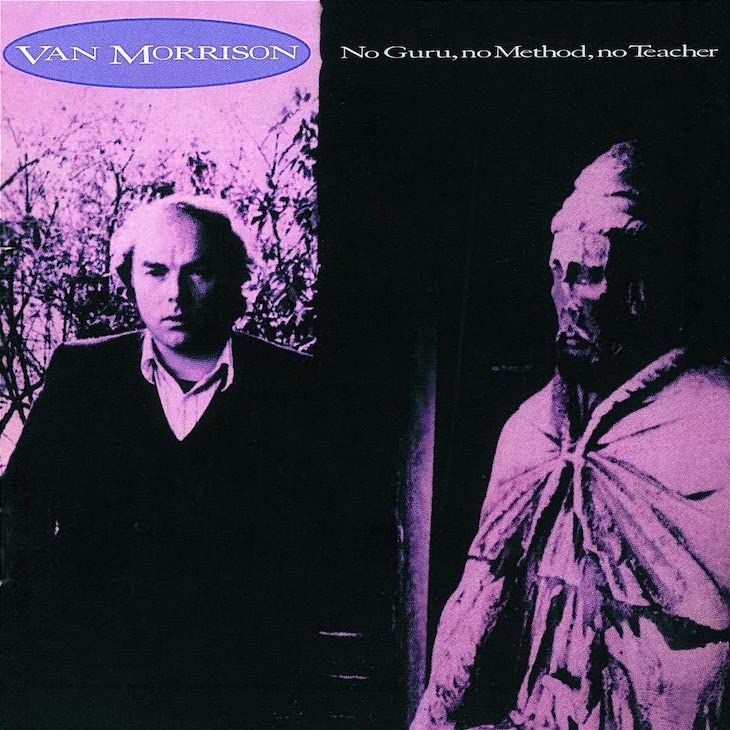 – – [vc_row][vc_column][vc_message message_box_style=”outline” icon_fontawesome=”fa fa-link” css_animation=”bounceIn”] [/vc_message][/vc_column][/vc_row] |
#14 Tir na nog Producer: Van Morrison Album: No Guru, No Method, No Teacher (1986) [vc_row][vc_column][vc_message message_box_color=”mulled_wine” icon_fontawesome=”fa fa-quote-left”] The second side of the album begins with “Tir Na Nog,” another track full of imagery, mysticism and mystery. It speaks of reincarnation, spirituality and destiny, the strings reflecting Morrison’s voice, as he creates a sense of yearning, of wanting to stay forever young. ‘Tir Na Nog’ is the Irish mythological ‘land of the young’.
|
–
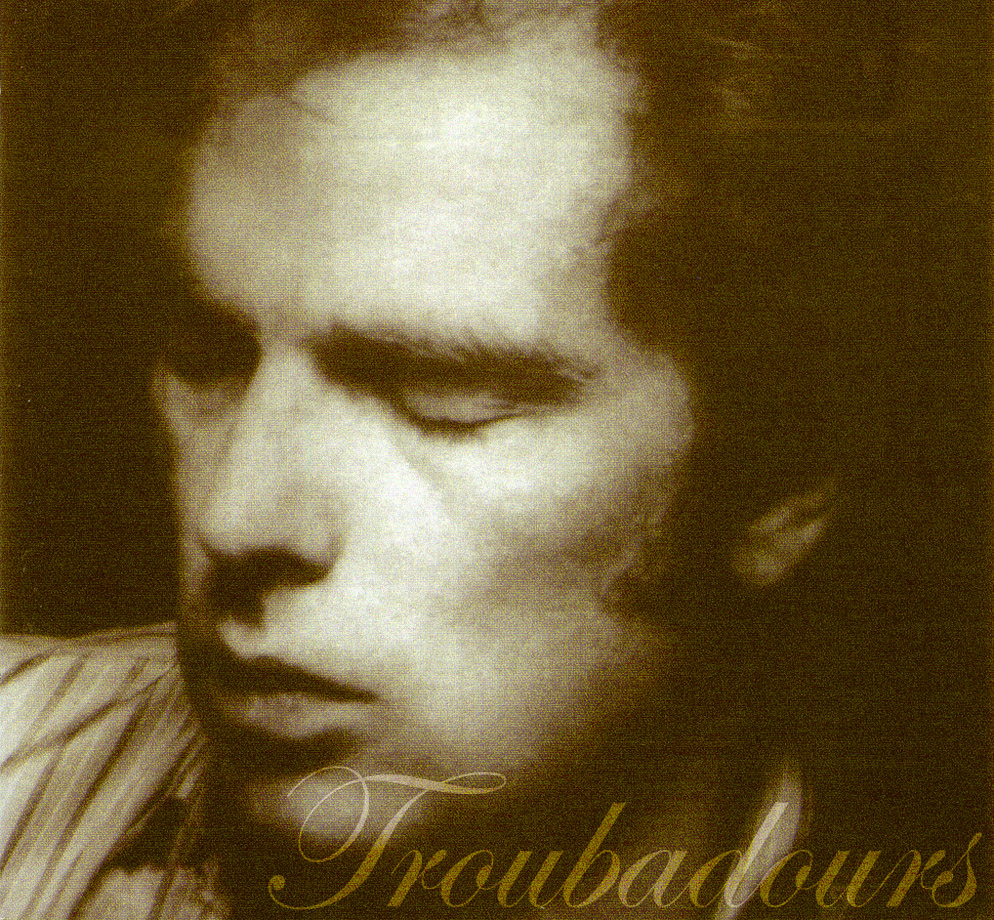 – – [vc_row][vc_column][vc_message message_box_style=”outline” icon_fontawesome=”fa fa-link” css_animation=”bounceIn”] [/vc_message][/vc_column][/vc_row] |
#15 Troubadours Producer: Van Morrison, Mick Glossop Album: Into the Music (1979) [vc_row][vc_column][vc_message message_box_color=”mulled_wine” icon_fontawesome=”fa fa-quote-left”] Three other songs on the first side all allude to Morrison’s spiritual journey. ‘Stepping out Queen’, ‘Troubadours’ and ‘You Make Me Feel So Free’ are all superb positive anthems, full of joy the piano, flute, violin and brass, all adding texture and feel. As always though it is Morrison’s vocal that pulls it all together, ensuring it makes sense. He is famous for his phrasing and timing and even a casual listen of this album shows why.
|
–
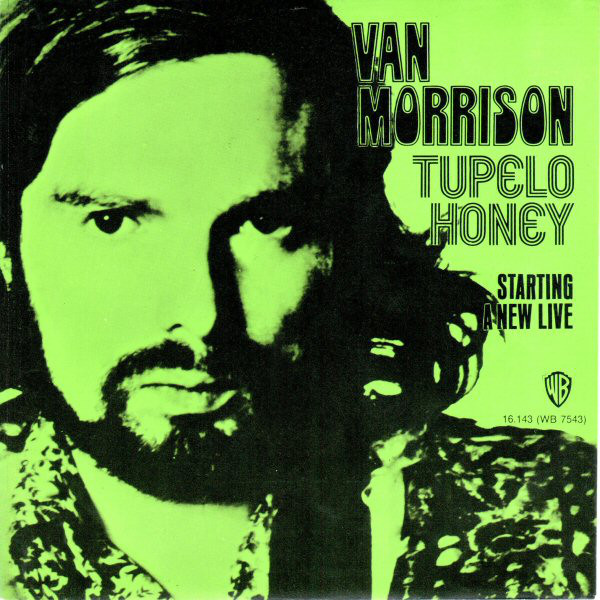 – – [vc_row][vc_column][vc_message message_box_style=”outline” icon_fontawesome=”fa fa-link” css_animation=”bounceIn”] [/vc_message][/vc_column][/vc_row] |
#16 Tupelo Honey Producer: Van Morrison, Ted Templeman Album: Tupelo Honey (1971) [vc_row][vc_column][vc_message message_box_color=”mulled_wine” icon_fontawesome=”fa fa-quote-left”]`Tupelo Honey’ is a slow-dripping declaration of love, free of the murk of the blues – the gentleness and determinedly non-blues tone of Morrison’s vocal flags up the coming of the otherworldly falsetto which emerged on `Warm Love and Veedon Fleece. It feels like a country song, yet if we listen we find no pedal steel, and the languid yet busy drum pattern is closer to a jazz skitter. Vibes settle gently on the offbeat, and Morrison’s acoustic guitar runs anticipate his 80s style. Approaching the first climax of the song, an extended improvisation around the chorus, which drops down back into a repetition of the first verse with one of Morrison’s characteristic mispronunciations, dropping ping `Chyneaer’ from the line, his singing of the line `She’s as sweet as Tupelo Honey’ from 5.35-43 is the emotional heart of the song. This is the place the song has been building up to, or earning access to, and the rest of the tune is an exploration of that moment, once reached.
|
–
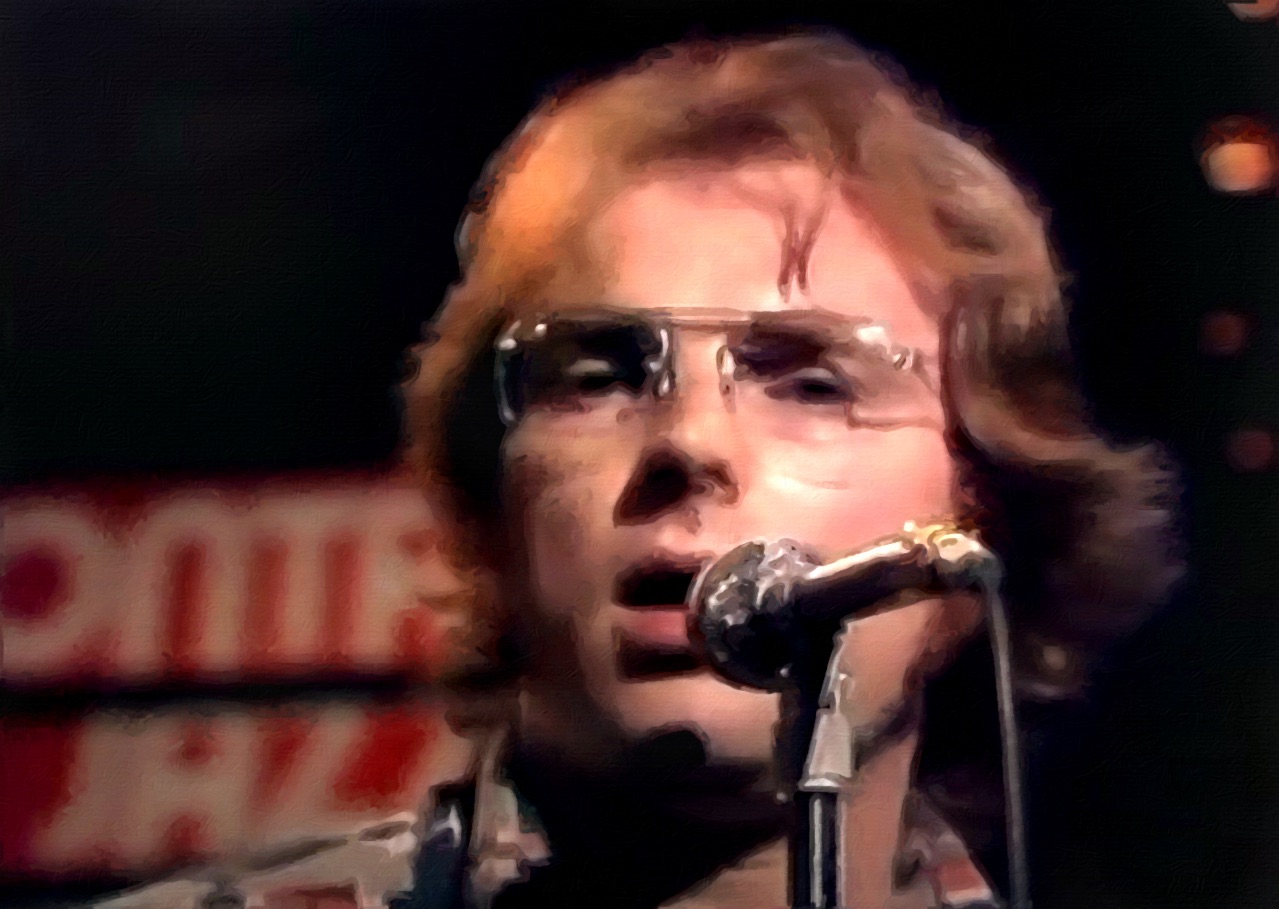 – – [vc_row][vc_column][vc_message message_box_style=”outline” icon_fontawesome=”fa fa-link” css_animation=”bounceIn”] [/vc_message][/vc_column][/vc_row] |
#17 Bulbs Producer: Van Morrison Album: Veedon Fleece (1974) [vc_row][vc_column][vc_message message_box_color=”mulled_wine” icon_fontawesome=”fa fa-quote-left”] “Of course, the best and most immediately memorable song on Veedon Fleece is “Bulbs“. Coming about as close to laying down a groove as he does on the album, the song quickly makes dust of its acoustic start, leaping headstrong into a Waylon Jennings’ style bass-roll, rump heavy and plush, pianos shimmering and fingerdense.”
|
–
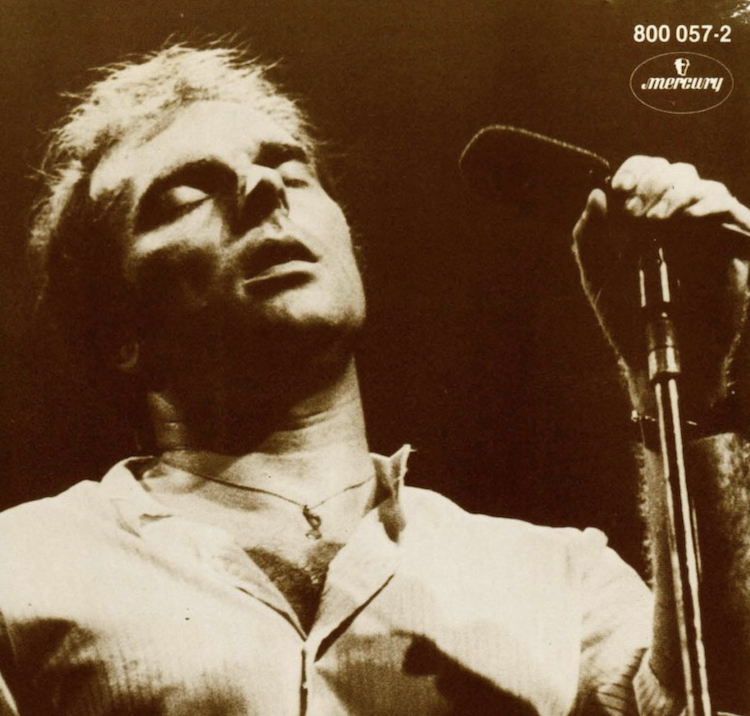 – – [vc_row][vc_column][vc_message message_box_style=”outline” icon_fontawesome=”fa fa-link” css_animation=”bounceIn”] [/vc_message][/vc_column][/vc_row] |
#18 And The Healing Has Begun Producer: Van Morrison, Mick Glossop Album: Into the Music (1979) [vc_row][vc_column][vc_message message_box_color=”mulled_wine” icon_fontawesome=”fa fa-quote-left”]And The Healing Has Begun’ iş the central song here, and perhaps in Morrison’s whole career. It starts just like ‘Cyprus Avenue’, no coincidence as the line about “songs from way back when” hints, and with a walk down the avenue (of dreams), to the sound of a haunted violin. A song of full, blazing sex as well as revelation. The healing here is like that in Arthurian myth, the wounded King restored through the action of the Grail, but it is also through as graphic a seduction, almost, as the original live version of ‘Gloria’. Van even names the drinks and musical accompaniment – Muddy Waters of course.
|
–
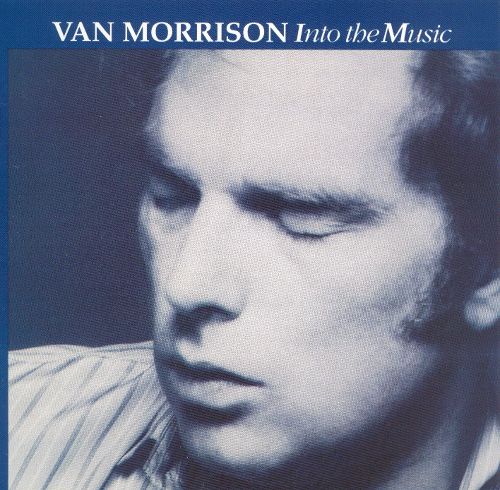 – – [vc_row][vc_column][vc_message message_box_style=”outline” icon_fontawesome=”fa fa-link” css_animation=”bounceIn”] [/vc_message][/vc_column][/vc_row] |
#19 Full Force Gale Producer: Van Morrison, Mick Glossop Album: Into the Music (1979) [vc_row][vc_column][vc_message message_box_color=”mulled_wine” icon_fontawesome=”fa fa-quote-left”] “Essentially a brisk pop tune, Morrison sings it with great fervour and commitment, delivering simple couplets such as ‘In the gentle evening breeze/In the whispering shady trees/I will find my sanctuary in the Lord’ with immense skill. The arrangement is also magnificent, with the fiddle part a particular joy…Into the Music is one of Van Morrison’s finest albums, and ‘Full Force Gale’ is arguably its finest track. “Full Force Gale” is one of the finest flat-out, good time pop songs that Van Morrison has ever wrote, and is a true testament to his new found faith.
|
–
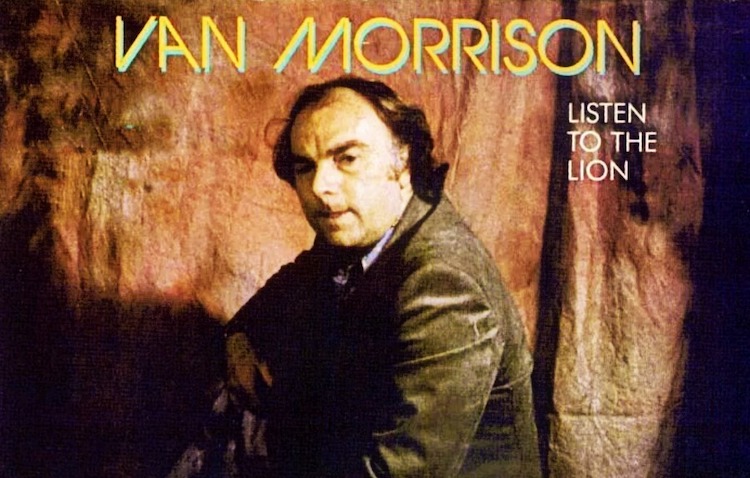 – – [vc_row][vc_column][vc_message message_box_style=”outline” icon_fontawesome=”fa fa-link” css_animation=”bounceIn”] [/vc_message][/vc_column][/vc_row] |
#20 Listen To The Lion Producer: Ted Templeman, Van Morrison Album: Saint Dominic’s Preview (1972) [vc_row][vc_column][vc_message message_box_color=”mulled_wine” icon_fontawesome=”fa fa-quote-left”] Across 11 minutes, he [Morrison] sings, chants, moans, cries, pleads, shouts, hollers, whispers, until finally he breaks away from language and speaks in Irish tongues, breaking away from ordinary meaning until he has loosed the lion inside himself. He begins to roar: he has that sound, that yarrrrragh, as he has never had it before. He is not singing it, it is singing him.
|
–
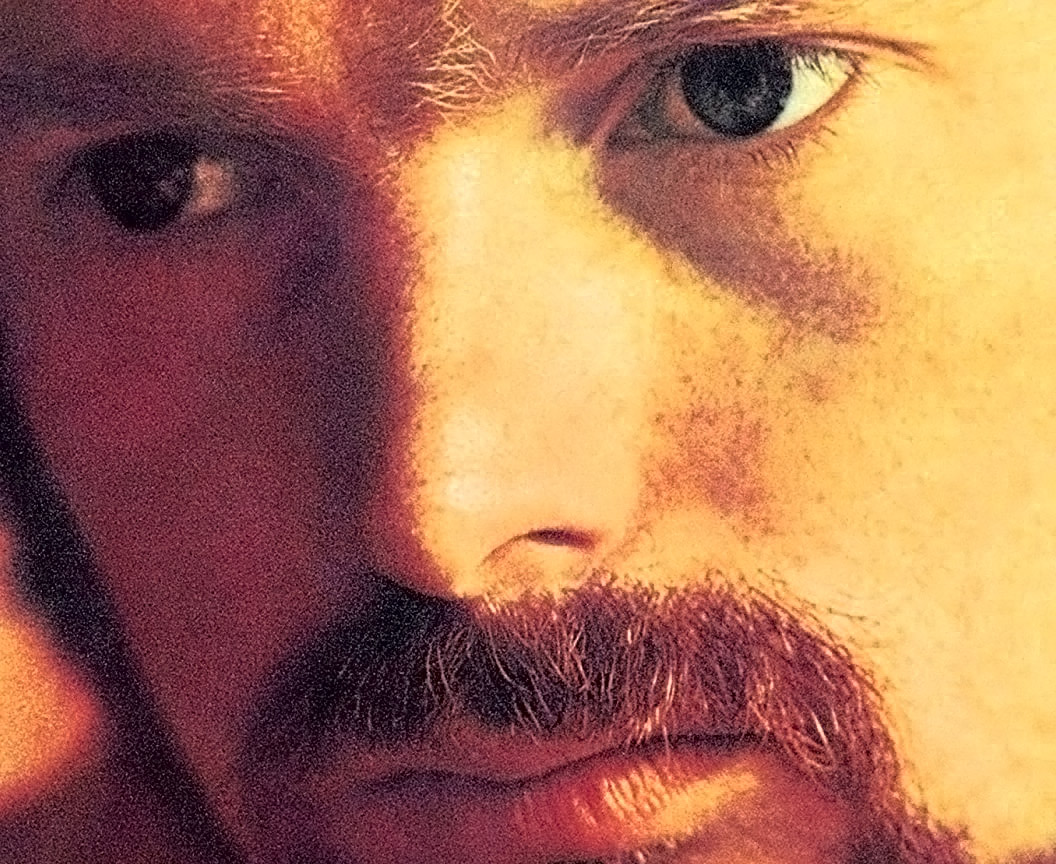 – – [vc_row][vc_column][vc_message message_box_style=”outline” icon_fontawesome=”fa fa-link” css_animation=”bounceIn”] [/vc_message][/vc_column][/vc_row] |
#21 Moondance Producer: Van Morrison Album: Moondance (1970) [vc_row][vc_column][vc_message message_box_color=”mulled_wine” icon_fontawesome=”fa fa-quote-left”] …the significance of the song “lies in its direct jazz approach…Astral Weeks had suggestions of jazz, but this song would take the genre head on. It would become Van Morrison’s most successful and definitive jazz composition.
|
–
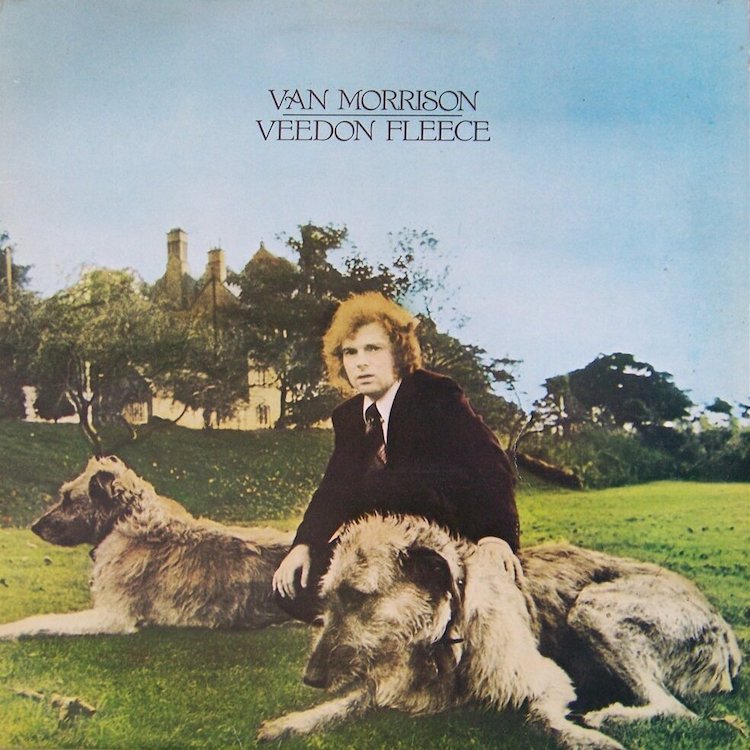 – – [vc_row][vc_column][vc_message message_box_style=”outline” icon_fontawesome=”fa fa-link” css_animation=”bounceIn”] [/vc_message][/vc_column][/vc_row] |
#22 Linden Arden Stole the Highlights Producer: Van Morrison Album: Veedon Fleece (1974) [vc_row][vc_column][vc_message message_box_color=”mulled_wine” icon_fontawesome=”fa fa-quote-left”]Aside from being one of the best-ever Morrison song titles, ‘Linden Arden Stole The Highlights’ is also one of his most haunting compositions. Shadowed by a piano and covered by strings, Morrison tells of Linden Arden (outlaw? rebel? hero?) and his time spent taking the law into his own hands. Morrison truly lets rip on this short song, and the song’s last line: “living with a gun”, usher in ‘Who Was That Masked Man’ a rather weaker variant of ‘Linden Arden..’.
|
–
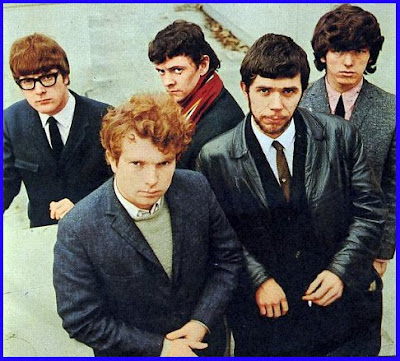 – – [vc_row][vc_column][vc_message message_box_style=”outline” icon_fontawesome=”fa fa-link” css_animation=”bounceIn”] [/vc_message][/vc_column][/vc_row] |
#23 Gloria Producer: Dick Rowe Album: The Angry Young Them (1965) [vc_row][vc_column][vc_message message_box_color=”mulled_wine” icon_fontawesome=”fa fa-quote-left”]Into the heart of the beast … here is something so good, so pure, that if no other hint of it but this record existed, there would still be such a thing as rock and roll … Van Morrison’s voice a fierce beacon in the darkness, the lighthouse at the end of the world. Resulting in one of the most perfect rock anthems known to humankind.
|
–
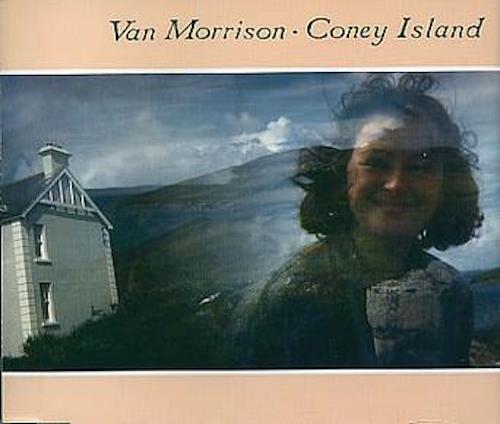 – – [vc_row][vc_column][vc_message message_box_style=”outline” icon_fontawesome=”fa fa-link” css_animation=”bounceIn”] [/vc_message][/vc_column][/vc_row] |
#24 Coney Island Producer: Van Morrison Album: Avalon Sunset (1989) [vc_row][vc_column][vc_message message_box_color=”mulled_wine” icon_fontawesome=”fa fa-quote-left”]With “Coney Island” we are back in lush pastures, all harps, strings and mournful French horn. Yet instead of drifting into the ether, Morrison delivers a wry prose poem hymning the pleasures of bird-watching, autumn sunshine and pottered herring along the coast of County Down (a boyhood haunt). It’s an earthly idyll whose final line. “Wouldn’t it be great if it was like this all the time?” urges us to get a little more paradise in our lives. A two-minute gem.
|
–
 – – [vc_row][vc_column][vc_message message_box_style=”outline” icon_fontawesome=”fa fa-link” css_animation=”bounceIn”] [/vc_message][/vc_column][/vc_row] |
#25 Vanlose Stairway Producer: Van Morrison Album: Beautiful Vision (1982) [vc_row][vc_column][vc_message message_box_color=”mulled_wine” icon_fontawesome=”fa fa-quote-left”]It is one of my favourite Morrison songs, a perfect ball of love and desire, belief and rock’n’roll, and, perhaps more oddly, one of the most frequently performed songs at his shows. Peter Mills, in Hymns to the Silence, refers to it as “this dark horse of a song” – a way to describe the surprising appeal of a song that was never a hit, but has proved compelling to many… Vanlose Stairway, that dark horse of a song, perhaps it is simply the strange and beautiful majesty of finding the Gita, and the Cochran, and the moonlight, in the pale brick, small balcony, and broad, blank windows of an ordinary apartment block in Copenhagen.
|
–
 – – [vc_row][vc_column][vc_message message_box_style=”outline” icon_fontawesome=”fa fa-link” css_animation=”bounceIn”] [/vc_message][/vc_column][/vc_row] |
#26 It’s All In The Game/You Know What They’re Writing About Producer: Van Morrison, Mick Glossop Album: Into the Music (1979) [vc_row][vc_column][vc_message message_box_color=”mulled_wine” icon_fontawesome=”fa fa-quote-left”]The album ends with one of Morrison’s great feats of interpretation. Taking crooner Tommy Edvards’ 1958 hit, “It’s all in the game”, as a mere sketch for a masterpiece, he embarks on an 11-minute act of exploration (the unedited studio version apparently lasted a full half-hour). Incorporating his own improvised refrain, “You Know What They’re Writing About”, it’s a vaulting exercise in musical telepathy, the entire band locked in tight, following each twist as Morrison takes a stately love song by the scruff of the neck and turns it into a jubilant, spontaneous hymn to love itself. By the end of it all, he is lost in the transformation. The song, and the album, slips away in a muted symphony of sighs and whispers. Having travelled so deeply into the music, Morrison has finally emerged on the other side, ready for the next journey – into the silence.
|
–
 – – [vc_row][vc_column][vc_message message_box_style=”outline” icon_fontawesome=”fa fa-link” css_animation=”bounceIn”] [/vc_message][/vc_column][/vc_row] |
#27 Dark Night Of The Soul Producer: Van Morrison Album: Three Chords & the Truth (2019) [vc_row][vc_column][vc_message message_box_color=”mulled_wine” icon_fontawesome=”fa fa-quote-left”]First single “Dark Night Of The Soul” is classic Van Morrison — a lovely and organic six-minute ramble about depression. It sounds like it was recorded live, even if it wasn’t, and it shows that Morrison’s incredible voice is still in fine form.
|
–
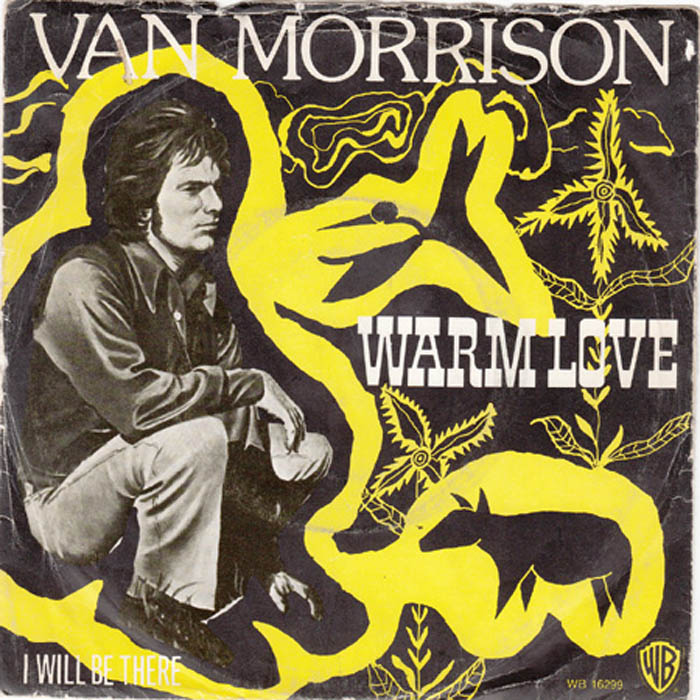 – – [vc_row][vc_column][vc_message message_box_style=”outline” icon_fontawesome=”fa fa-link” css_animation=”bounceIn”] [/vc_message][/vc_column][/vc_row] |
#28 Warm Love Producer: Van Morrison Album: Hard Nose the Highway (1973) [vc_row][vc_column][vc_message message_box_color=”mulled_wine” icon_fontawesome=”fa fa-quote-left”] “Next is the ingratiatingly melodic ‘Warm Love’, which embodies in all its details a sensuous appreciation of life and music.”
|
–
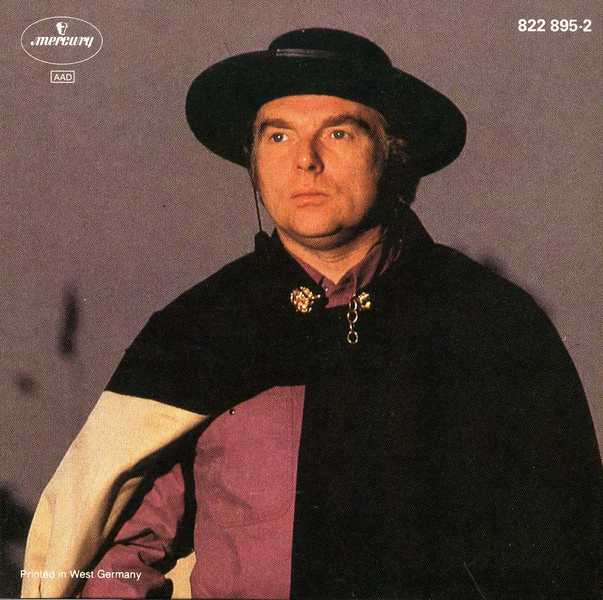 – – [vc_row][vc_column][vc_message message_box_style=”outline” icon_fontawesome=”fa fa-link” css_animation=”bounceIn”] [/vc_message][/vc_column][/vc_row] |
#29 A Sense of Wonder Producer: Van Morrison Album: A Sense Of Wonder (1985) [vc_row][vc_column][vc_message message_box_color=”mulled_wine” icon_fontawesome=”fa fa-quote-left”]Among Morrison’s finest songs of the decade, it’s a metaphysical meditation which moves from the esoteric (“You may call my love Sophia, I call my love philosophy,”) to the deeply personal. Unfolding languidly over seven minutes, it returns Morrison once again to a vividly reimagined Belfast childhood. Working towards a mood of ecstatic nostalgia, the singer summons up humdrum memories and elevates them to the epiphanic: “Pastie suppers down at Davey’s chipper/Gravy rings, barmbracks, Wagon Wheels, Snowballs… a sense of wonder.”
|
–
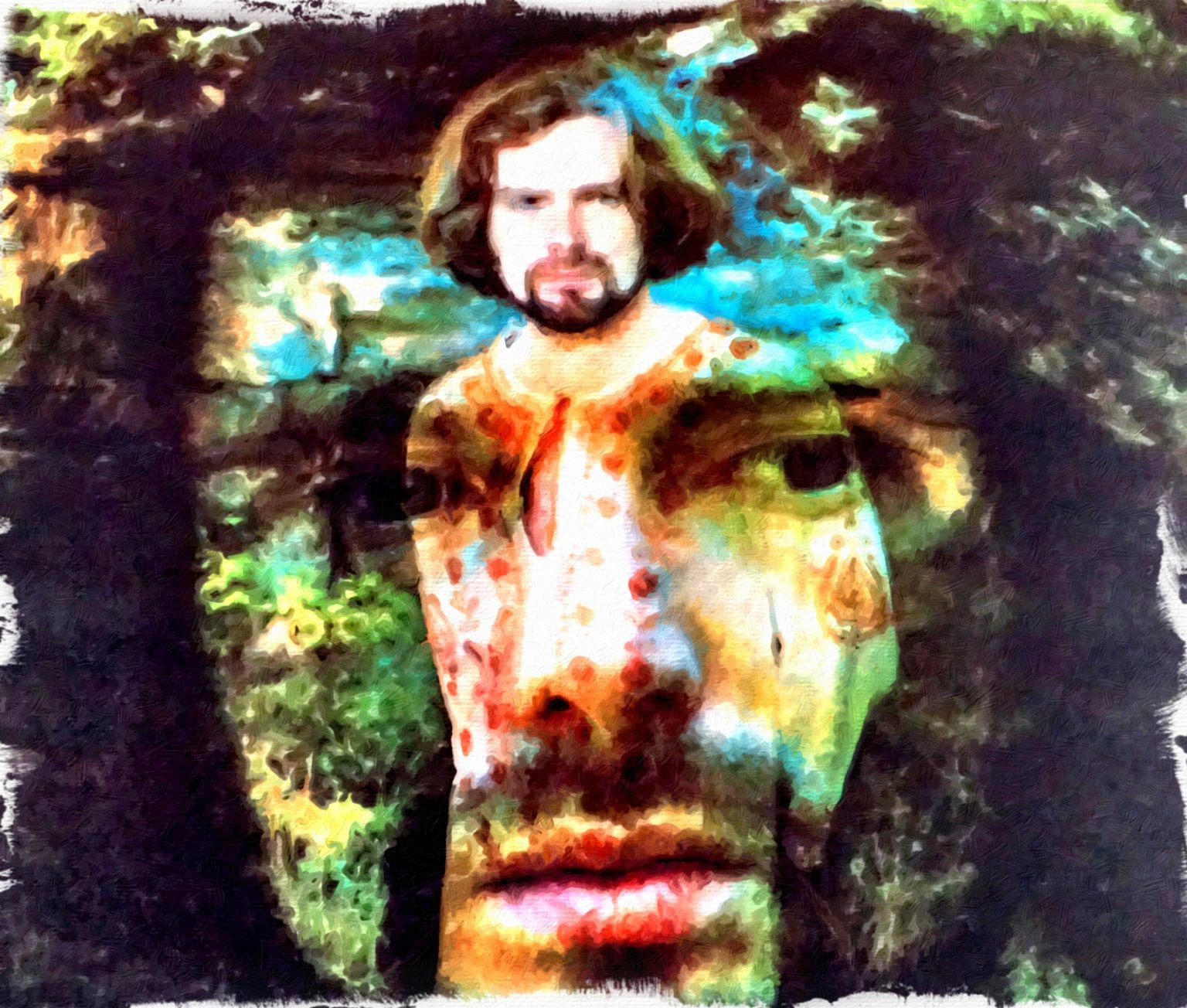 – – [vc_row][vc_column][vc_message message_box_style=”outline” icon_fontawesome=”fa fa-link” css_animation=”bounceIn”] [/vc_message][/vc_column][/vc_row] |
#30 I’ve been working Producer: Van Morrison Album: His Band and the Street Choir (1970) [vc_row][vc_column][vc_message message_box_color=”mulled_wine” icon_fontawesome=”fa fa-quote-left”]“His music is rooted in the era just before James Brown changed the rhythmic rules. Morrison’s hardly devoid of groove: “I’ve Been Working,” from 1970’s His Band and the Street Choir, chugs so hard that a producer named Rayko turned it into a disco edit; a pair of ten-minute run-throughs of the same song from the 2013 box of Moondance outtakes burn like contemporary James Brown”
|
–
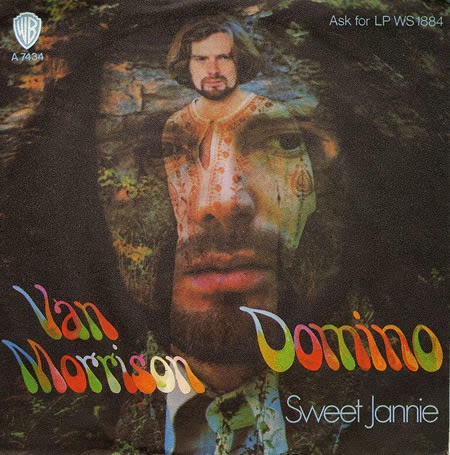 – – [vc_row][vc_column][vc_message message_box_style=”outline” icon_fontawesome=”fa fa-link” css_animation=”bounceIn”] [/vc_message][/vc_column][/vc_row] |
#31 Domino Producer: Van Morrison Album: His Band and the Street Choir (1970) [vc_row][vc_column][vc_message message_box_color=”mulled_wine” icon_fontawesome=”fa fa-quote-left”] A punchy affair, with words that mean little, though threatening the whole feelgood thrust of the album… The music is something else again, toughly joyful, with an early Van hymn of praise to the radio…
|
–
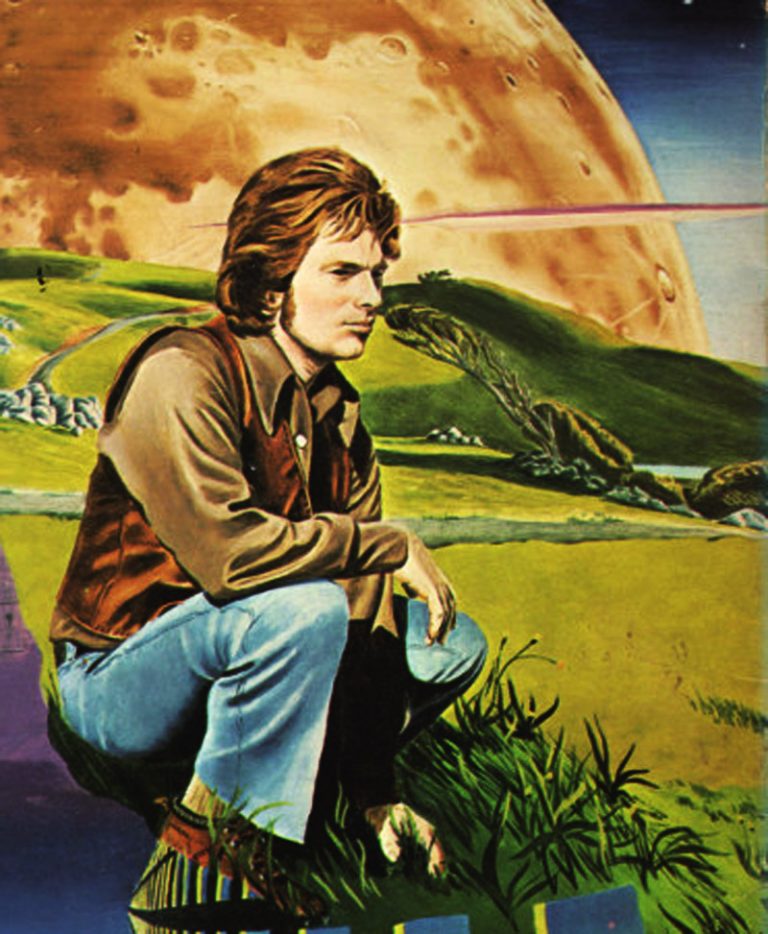 – – [vc_row][vc_column][vc_message message_box_style=”outline” icon_fontawesome=”fa fa-link” css_animation=”bounceIn”] [/vc_message][/vc_column][/vc_row] |
#32 Hard Nose The Highway Producer: Van Morrison Album: Hard Nose the Highway (1973) [vc_row][vc_column][vc_message message_box_color=”mulled_wine” icon_fontawesome=”fa fa-quote-left”]“Hard Nose the Highway is psychologically complex, musically somewhat uneven and lyrically excellent. Its surface pleasures are a little less than those of St. Dominic’s Preview and a great deal less than those of Tupelo Honey, while its lyric depths are richer and more accessible than those of either predecessor. The major theme of Hard Nose is nostalgia, briefly but firmly counter-pointed by disillusion.”
|
–
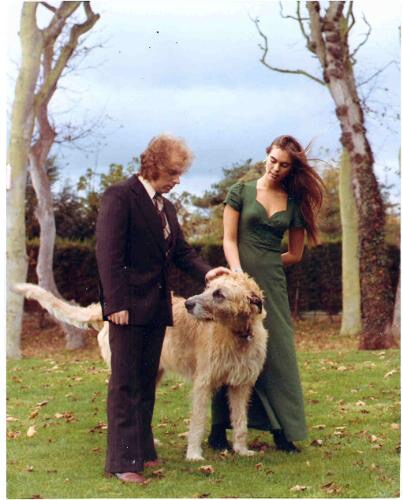 – – [vc_row][vc_column][vc_message message_box_style=”outline” icon_fontawesome=”fa fa-link” css_animation=”bounceIn”] [/vc_message][/vc_column][/vc_row] |
#33 Fair Play Producer: Van Morrison Album: Veedon Fleece (1974) [vc_row][vc_column][vc_message message_box_color=”mulled_wine” icon_fontawesome=”fa fa-quote-left”]In album opener `Fair Play, he uses a strange, back-of-the-throat style, which brings a kind of watery, melancholic smile to the tone of his voice. The key lyrics in this song are, unexpectedly, `architecture, `Geronimo’ and the line `only one meadow’s way to go. That `o’ sound is central to the slow wisdom of this performance, formance, the voice possessed of sensual openness which is also at one remove from the appetites and rhythmic diktats of the body. The voice does not simply suggest or reflect this state of temperate bliss, it somehow is it. Thus the appeal to the mind offered and requested by `Tell me of Poe / Oscar Wilde and Thoreau’ is also physically slow and sensuous. He doubles `mystery’ (2.12) and at 2.38-45 allows the word `dream’ to slide into a soft mist of sound, as he does on the `love that loves to love section of `Madame George.
|
–
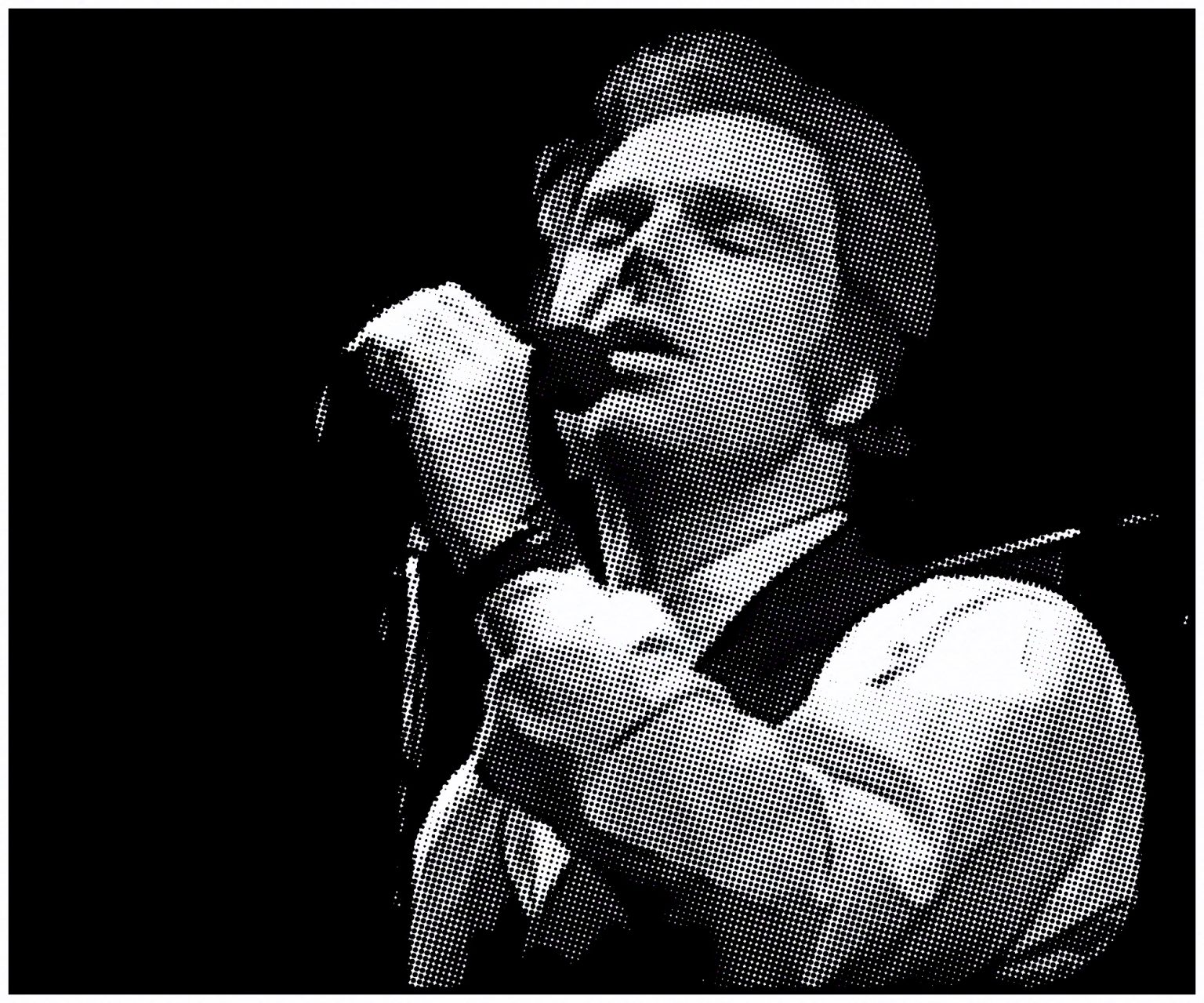 – – [vc_row][vc_column][vc_message message_box_style=”outline” icon_fontawesome=”fa fa-link” css_animation=”bounceIn”] [/vc_message][/vc_column][/vc_row] |
#34 You make me feel so free Producer: Van Morrison, Mick Glossop Album: Into the Music (1979) [vc_row][vc_column][vc_message message_box_color=”mulled_wine” icon_fontawesome=”fa fa-quote-left”]“Van was having a good time making the record. It felt like a new beginning. It was cut in about four days, all live, but he worked a little bit more on the arrangements with us. We even did a couple of days’ rehearsing in a hall.”
|
–
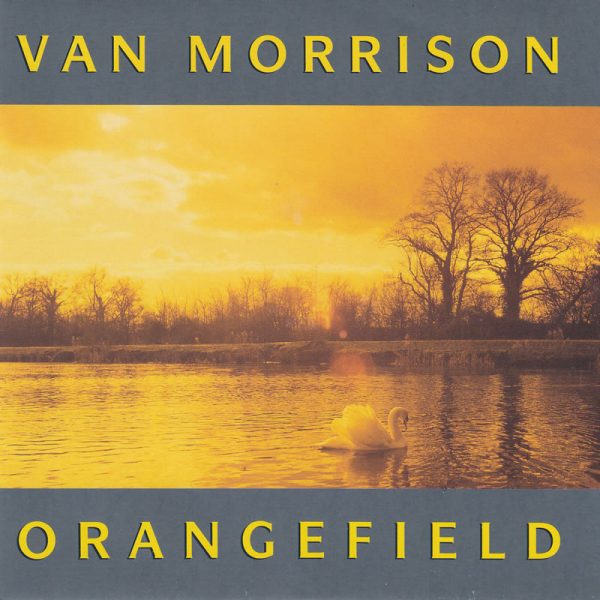 – – [vc_row][vc_column][vc_message message_box_style=”outline” icon_fontawesome=”fa fa-link” css_animation=”bounceIn”] [/vc_message][/vc_column][/vc_row] |
#35 Orangefield Producer: Van Morrison Album: Avalon Sunset (1989) [vc_row][vc_column][vc_message message_box_color=”mulled_wine” icon_fontawesome=”fa fa-quote-left”]Orangefield hits a familiar theme, the purity of young love back in Ulster days, and lyric doesn’t elaborate much, but Morrison is in strident, inspired voice and he ladles on arrangements to match; thumping drums, banging grand piano, torrents of strings. Although retrospective, the lyric insists that the singer “loves you now in Orangefield”, as if the intervening years don’ matter; the moment is out of time, ever-present.
|
–
 – – [vc_row][vc_column][vc_message message_box_style=”outline” icon_fontawesome=”fa fa-link” css_animation=”bounceIn”] [/vc_message][/vc_column][/vc_row] |
#36 Stranded Producer: Van Morrison for Exile Productions Album: Magic Time (2005) [vc_row][vc_column][vc_message message_box_color=”mulled_wine” icon_fontawesome=”fa fa-quote-left”]“Stranded” has a gorgeous faux doo wop lilt, and an elegant, timeless piano that cascades from the ether as a nocturnal alto saxophone (Morrison) who announces a stolid yet world-weary vocal that unhurriedly moves along to a backing chorus. One can hear traces of The Platters’ “Twilight Time” and The Penguins’ “Earth Angel” in its grain.
|
–
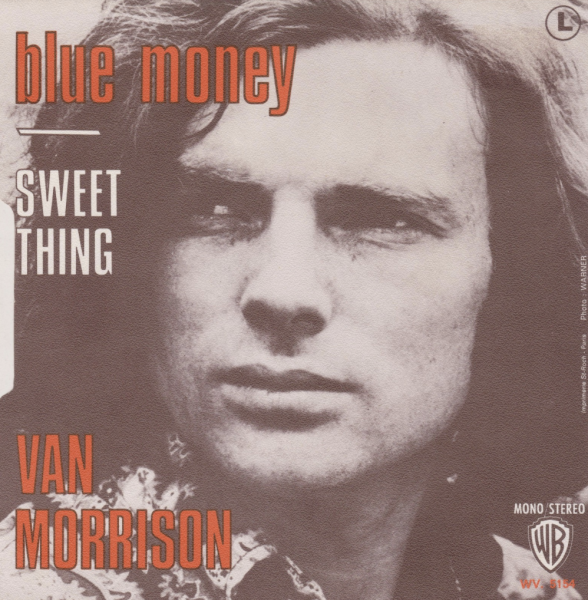 – – [vc_row][vc_column][vc_message message_box_style=”outline” icon_fontawesome=”fa fa-link” css_animation=”bounceIn”] [/vc_message][/vc_column][/vc_row] |
#37 Sweet Thing Producer: Lewis Merenstein Album: Astral Weeks (1968) [vc_row][vc_column][vc_message message_box_color=”mulled_wine” icon_fontawesome=”fa fa-quote-left”]After two and a half minutes, Davis seems to want to shut the song down. His bass makes a clacking sound, as if to put the brakes on the rhythm as everyone else rushes ahead; the brakes don’t hold. My my, my my, my mmm-my my, my my my, Morrison muses; he takes a breath, and in one of the highest points in a song made of high points—“And I will run my merry way and jump the hedges first,” is the first line; the image is so thrilling you never lose sight of it as the song moves on, and the singer never does stop jumping—he shifts into a higher gear. He finds an image that is as adult as the first is childlike, carrying specters the grown man cannot gainsay, an image that is less abandoned, more determined, but as much a sign of freedom, saying “And I will raise my hand up into the nighttime sky”—
|
–
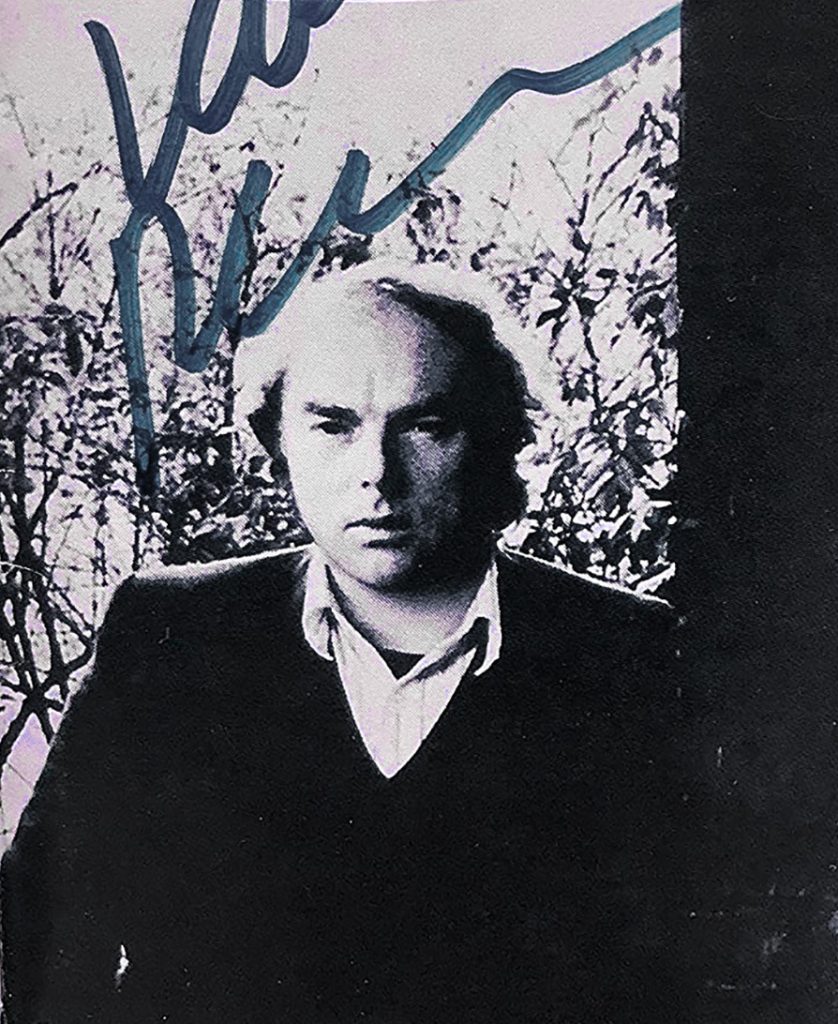 – – [vc_row][vc_column][vc_message message_box_style=”outline” icon_fontawesome=”fa fa-link” css_animation=”bounceIn”] [/vc_message][/vc_column][/vc_row] |
#38 One Irish Rover Producer: Van Morrison Album: No Guru No Method No Teacher (1986) [vc_row][vc_column][vc_message message_box_color=”mulled_wine” icon_fontawesome=”fa fa-quote-left”]One Irish Rover is the penultimate song and can be found on his Best Of Van Morrison Volume Two album along with In the Garden…Van’s vocal performance here is the highlight again with one of the warmest parts of the album – at least in the melody. It is while listening to this gentle, steady little number that you realise that the standard of music has been consistently strong throughout the album.
|
–
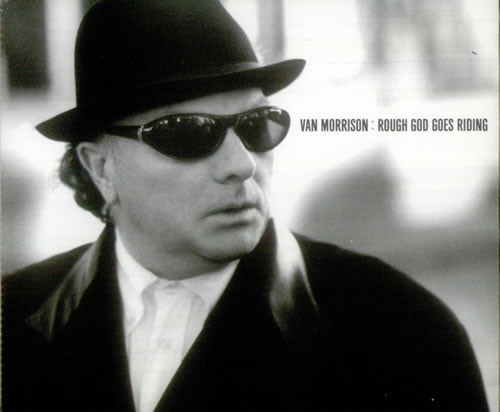 – – [vc_row][vc_column][vc_message message_box_style=”outline” icon_fontawesome=”fa fa-link” css_animation=”bounceIn”] [/vc_message][/vc_column][/vc_row] |
#39 Rough God Goes Riding Producer: Van Morrison Album: The Healing Game (1997) [vc_row][vc_column][vc_message message_box_color=”mulled_wine” icon_fontawesome=”fa fa-quote-left”]The opening song ‘Rough God Goes Riding’, sets the tone for the whole album, as dark as it’s cover. Van’s voice is as dark as Leonard Cohen on his album The Future – basically there isn’t one – or Dylan’s wracked vocal on his last decent album Oh Mercy. Everything is broken. Van’s album begins with “mud splattered victims” on the TV, WB Yeats’ “rough god” – a figure from the Apocalypse and his poem ‘The Second Coming’, and Van being staked out by the tabloid press. Ellis’ saxophone solo is masterful, the same slow scream as Van’s throaty shout. Van asks for a Bible.
|
–
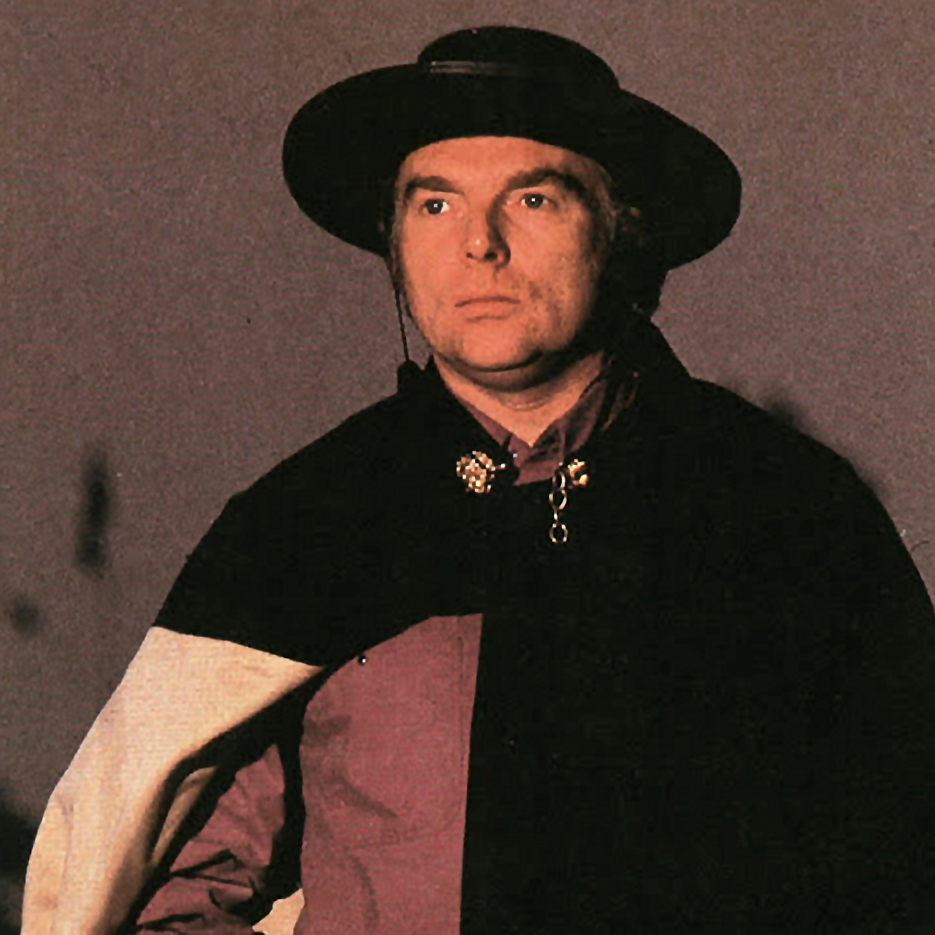 – – [vc_row][vc_column][vc_message message_box_style=”outline” icon_fontawesome=”fa fa-link” css_animation=”bounceIn”] [/vc_message][/vc_column][/vc_row] |
#40 The Master’s Eyes Producer: Van Morrison Album: A Sense Of Wonder (1985) [vc_row][vc_column][vc_message message_box_color=”mulled_wine” icon_fontawesome=”fa fa-quote-left”]We used to meet and talk about metaphysics. He has a voracious appetite for the esoteric and a great interest in the mystical poets. … Van saw his music not just as entertainment but as a form of meditation, a vehicle for his own spiritual ideas.’
|
–
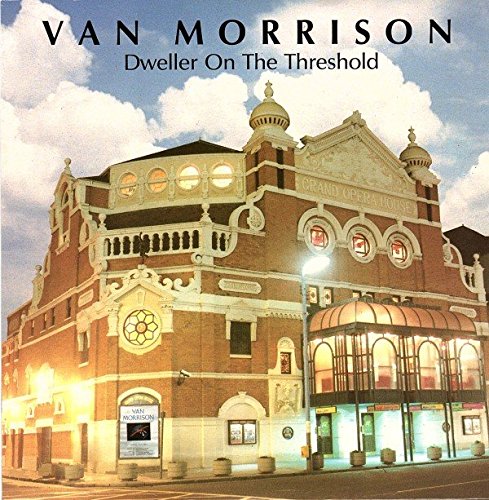 – – [vc_row][vc_column][vc_message message_box_style=”outline” icon_fontawesome=”fa fa-link” css_animation=”bounceIn”] [/vc_message][/vc_column][/vc_row] |
#41 Dweller on the Threshold Producer: Van Morrison Album: Beautiful Vision (1982) [vc_row][vc_column][vc_message message_box_color=”mulled_wine” icon_fontawesome=”fa fa-quote-left”]The pounding ‘Dweller On The Threshold’ is one of Morrison’s most convincing depictions of his frequent quest for spiritual enlightenment. It is a journey from the darkness into light, and propelled by Tom Dollinger’s relentless drum and cymbal rhythm, Van takes you along for the ride.
|
–
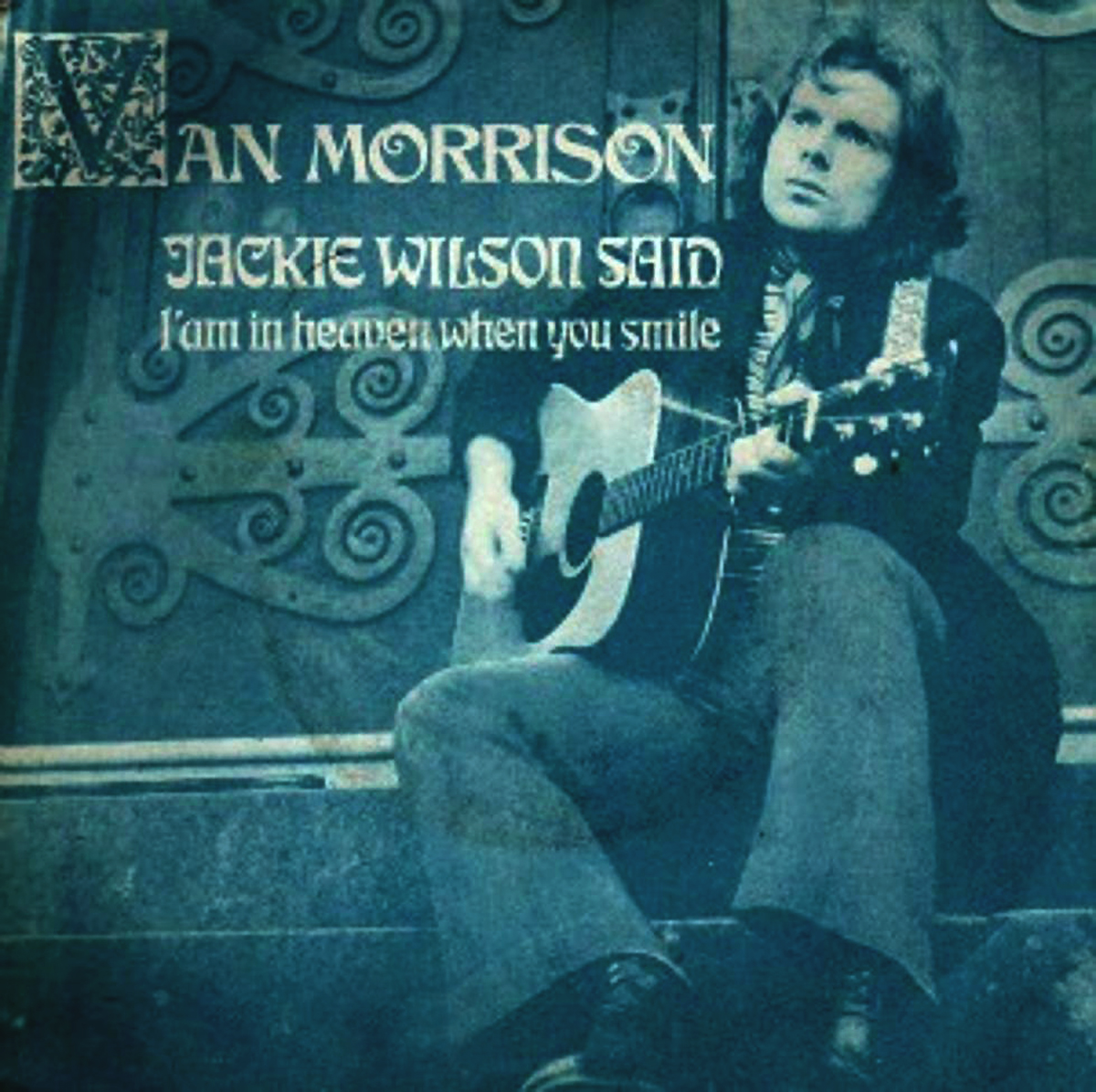 – – [vc_row][vc_column][vc_message message_box_style=”outline” icon_fontawesome=”fa fa-link” css_animation=”bounceIn”] [/vc_message][/vc_column][/vc_row] |
#42 Jackie Wilson Said (I’m in Heaven When You Smile) Producer: Ted Templeman, Van Morrison Album: Saint Dominic’s Preview (1972) [vc_row][vc_column][vc_message message_box_color=”mulled_wine” icon_fontawesome=”fa fa-quote-left”]Somehow he is able to congeal the feeling of listening to one’s favorite music and/or looking at a loved one’s smile into song, and it just may be the most immediate and euphoric recording in his entire catalogue—it inspires a rush of emotion.
|
–
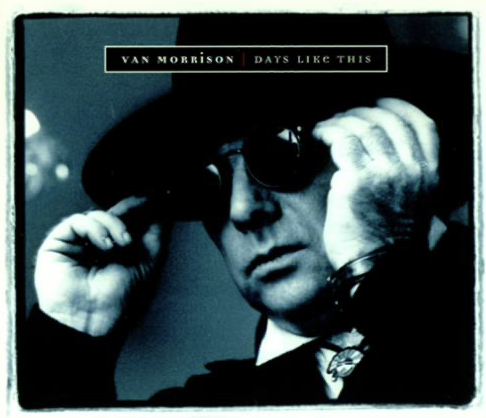 – – [vc_row][vc_column][vc_message message_box_style=”outline” icon_fontawesome=”fa fa-link” css_animation=”bounceIn”] [/vc_message][/vc_column][/vc_row] |
#43 Days Like This Producer: Van Morrison Album: Days Like This (1995) [vc_row][vc_column][vc_message message_box_color=”mulled_wine” icon_fontawesome=”fa fa-quote-left”]..Immediately following “Songwriter” comes a stunningly simple piece of introspection called “Days Like This” — classic Van Morrison, as though he knew he would need to atone pretty quickly. With its steady, churchgoing easiness, “Days Like This” is everything “Songwriter” is not: a gentle, understated gospel prayer invested with lyrical poise and old-soul insight. Here is the man who is concerned with soul healing and salvation, his every pronouncement buttressed by terse horns and firm piano triads. Here is the worshipful Irish aspirant to the soul throne.
|
–
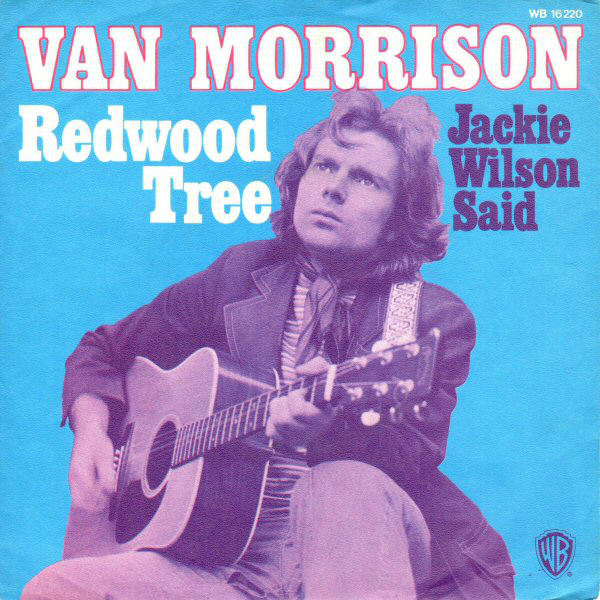 – – [vc_row][vc_column][vc_message message_box_style=”outline” icon_fontawesome=”fa fa-link” css_animation=”bounceIn”] [/vc_message][/vc_column][/vc_row] |
#44 Redwood Tree Producer: Ted Templeman, Van Morrison Album: Saint Dominic’s Preview (1972) [vc_row][vc_column][vc_message message_box_color=”mulled_wine” icon_fontawesome=”fa fa-quote-left”]“Redwood Tree” is a song of reconciliation, which seems to graft Van’s Belfast childhood onto California, where redwoods actually grow, “Keep us from all harm”, an invocation to the spirit of the ancient wood.
|
–
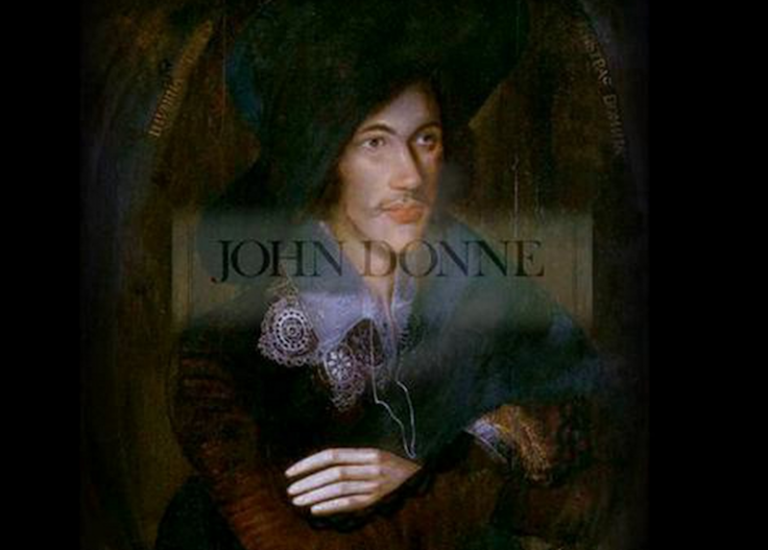 – – [vc_row][vc_column][vc_message message_box_style=”outline” icon_fontawesome=”fa fa-link” css_animation=”bounceIn”] [/vc_message][/vc_column][/vc_row] |
#45 Rave On, John Donne Producer: Van Morrison Album: Inarticulate Speech of the Heart (1983) [vc_row][vc_column][vc_message message_box_color=”mulled_wine” icon_fontawesome=”fa fa-quote-left”]The major song on the album is in fact a poem – yes, a real one, recited, though Morrison cannot stop himself breaking into song, and a slow saxophone ends the proceedings. ‘Rave On, John Donne’ sounds like a Ginsberg rant of joy, with the metaphysical Elizabethan and other dead poets brought up to date, as beacons of light. Walt Whitman, Omar Khayam, WB Yeats as well: an Open University reading list of visionaries. David Hayes confirms that a forty-five minute version was recorded live in the studio. “….It was some session, it was like being in a church.”
|
–
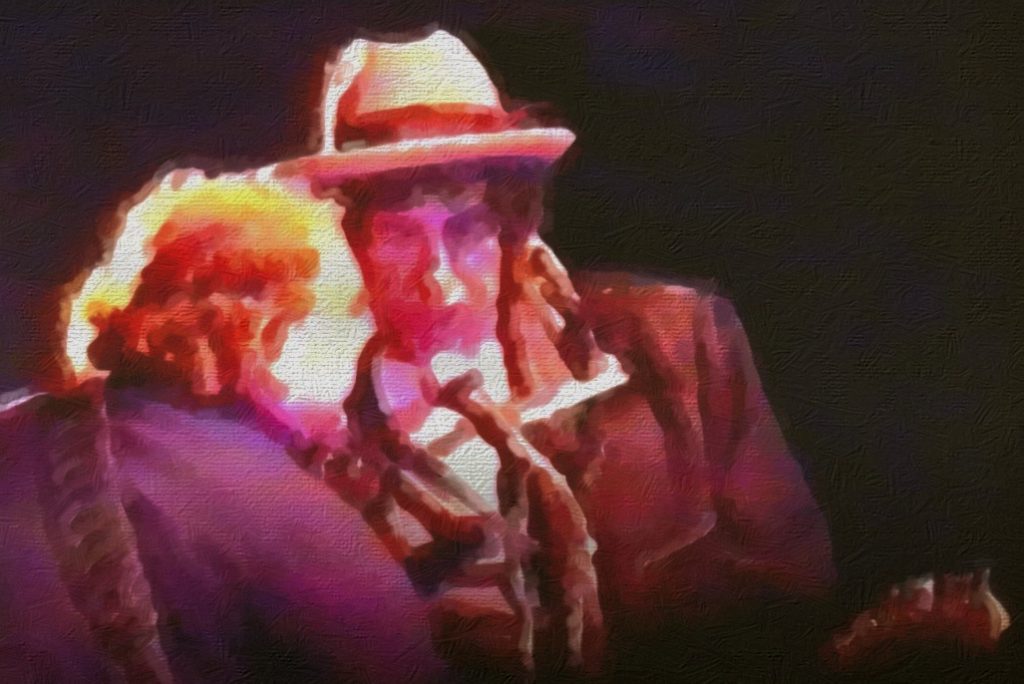 – – [vc_row][vc_column][vc_message message_box_style=”outline” icon_fontawesome=”fa fa-link” css_animation=”bounceIn”] [/vc_message][/vc_column][/vc_row] |
#46 Why must I always explain? Producer: Van Morrison Album: Hymns to the Silence (1991) [vc_row][vc_column][vc_message message_box_color=”mulled_wine” icon_fontawesome=”fa fa-quote-left”]The song starts off with a nice Celtic touch, courtesy of the accordion. It has slight echoes of The Pogues and their rustic song, A Pair of Brown Eyes from the dynamic Rum Sodomy and the Lash album. The track lasts just under four minutes and Morrison doesn’t waste a moment. There are two aspects that make it rise effortlessly above the fray. The first is Van’s powerful vocal delivery; you definitely get the feeling of utter indignation. His phrasing of key words and sentences are simply superb. One thing you can’t accuse him of is faking it. The other aspect that makes this so strong is the melody.
|
–
 – – [vc_row][vc_column][vc_message message_box_style=”outline” icon_fontawesome=”fa fa-link” css_animation=”bounceIn”] [/vc_message][/vc_column][/vc_row] |
#47 Avalon of the Heart Producer: Van Morrison Album: Enlightenment (1990) [vc_row][vc_column][vc_message message_box_color=”mulled_wine” icon_fontawesome=”fa fa-quote-left”]‘Avalon Of The Heart’ is Morrison’s most explicit homage to the inspiration and insight brought to him by his relationship with the idea of Avalon.46 It features a gusty performance from London vocal choral group the Ambrosian Singers. .. Perhaps aware of its summative nature, Morrison certainly throws everything thing into, and at, the song. While it captures one of his best studio vocal performances of the period, perhaps spurred on by the great surging wave of sound always just coming to its crest behind him, the experience of listening to song is somehow, with topographic appropriateness, flat. … In the lyric, Avalon is unambiguously located in the internal realm (the heart) as firmly as a landscape through which one might go riding. The landscape is thus appropriately a mix of mythological elements, some of which are universal or public in that they are drawn from the lore of Glastonbury – the enchanted ancient vale, Camelot – some from the intersection of Arthurian and Christian fable – the Holy Grail, `the upper room’ – and some are local or personal to Morrison, most notably the unexpected reintroduction of a detail of the emotional architecture of ‘Astral Weeks; in the reference to `the viaducts of my [as opposed to `your’ in the older song] dreams’
|
–
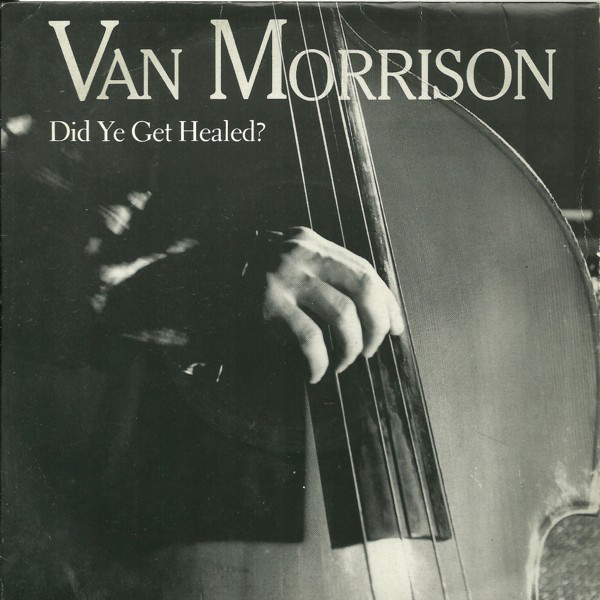 – – [vc_row][vc_column][vc_message message_box_style=”outline” icon_fontawesome=”fa fa-link” css_animation=”bounceIn”] [/vc_message][/vc_column][/vc_row] |
#48 Did Ye Get Healed? Producer: Van Morrison Album: Poetic Champions Compose (1987) [vc_row][vc_column][vc_message message_box_color=”mulled_wine” icon_fontawesome=”fa fa-quote-left”]Music is like a healing thing, and we are all being healed. I’m being healed. That’s what I know, what I feel. It’s what I’m going through and we all go through. Any kind of art or music is involved in healing, whether it’s rock `n’ roll or classical music, it’s all healing. People go to a rock and roll show and they come away feeling better. All this is just the foreground, but the background is something else..
|
–
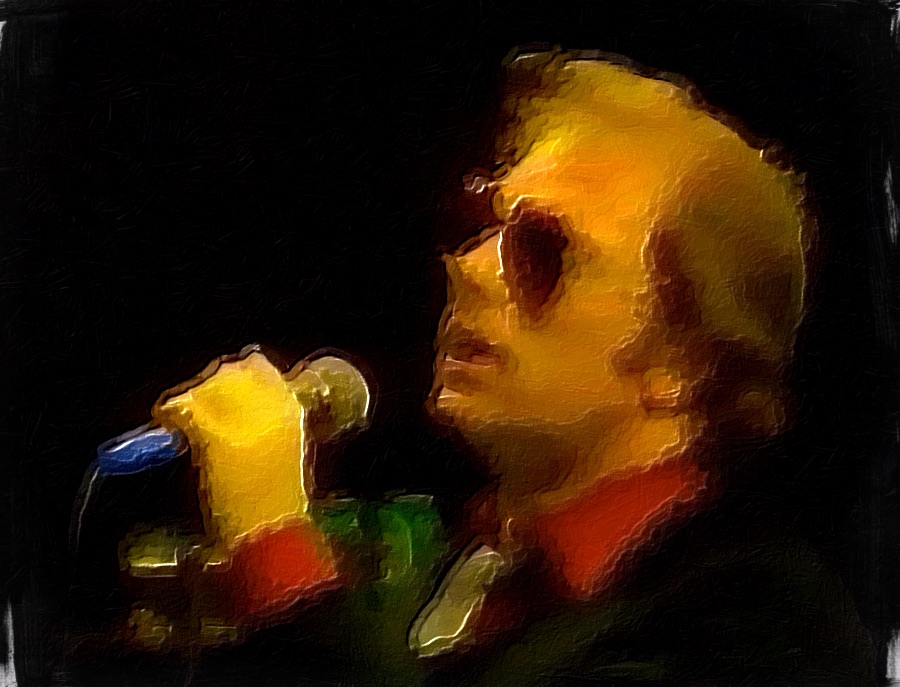 – – [vc_row][vc_column][vc_message message_box_style=”outline” icon_fontawesome=”fa fa-link” css_animation=”bounceIn”] [/vc_message][/vc_column][/vc_row] |
#49 – Cleaning Windows Producer: Van Morrison Album: Beautiful Vision (1982) [vc_row][vc_column][vc_message message_box_color=”mulled_wine” icon_fontawesome=”fa fa-quote-left”]Though not the best known, Morrison’s greatest love song, in my view, is the .. `Queen Of The Slipstream, but that tune could never have become a standard in the way that `Have I Told You Lately’ has, partly because its lyrical and musical symbologies are so closely associated to Morrison himself. Can we imagine Rod Stewart blandly crooning about the slipstream and the poetic champions as he does the lyric to `Have I Told You Lately’? It seems unlikely.
|
–
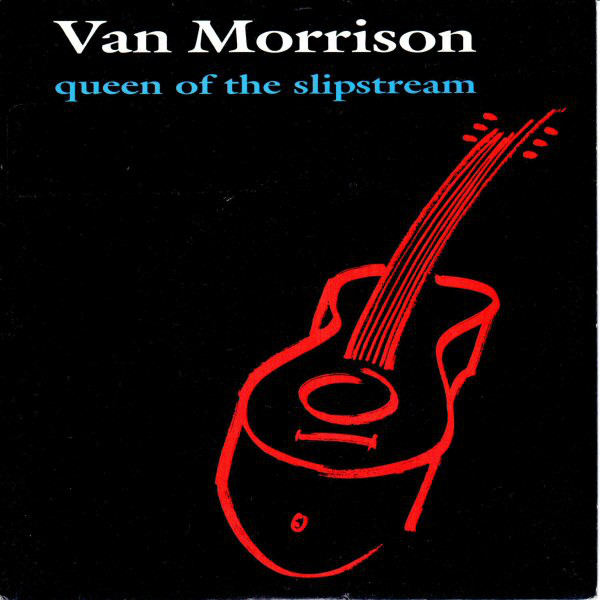 – – [vc_row][vc_column][vc_message message_box_style=”outline” icon_fontawesome=”fa fa-link” css_animation=”bounceIn”] [/vc_message][/vc_column][/vc_row] |
#50 Queen of the Slipstream Producer: Van Morrison Album: Poetic Champions Compose (1987) [vc_row][vc_column][vc_message message_box_color=”mulled_wine” icon_fontawesome=”fa fa-quote-left”]Hung on a metaphor as clear as glass, ‘Cleaning Windows’ applies one night’s notions to a lifetime. It’s the LP’s musical highlight as well, with a guitar-organ combination reminiscent of the Band, and a jumping sax solo to boot. Shaking himself awake each morning, the dedicated romantic looks to see how he’s grown. Peppered with fraternal details that recall ‘And It Stoned Me,’ ‘Cleaning Windows’ boldly restates the self-help maxim that you are your own best friend.
|
Spotify Compiled top 50 Van Morrison:
A list that omits Brown Eyed Girl.Crazy Love and Young Lovers Do is worthless
Actually it’s not 🙂 We considered the tracks you mention, but as it says in the last post, we tried to not go overboard with choosing too many songs from just a few albums. The list is meant to reflect the diversity in Van Morrison’s songwriting. All of Astral Weeks, Moondance or Veedon Fleece (well almost) could be on the list. Finding enough songs wasn’t hard, it was the narrowing down that was agonising.
Thanks for the feedback!
Two thoughts…
The more you to Saint Dominic’s Preview (the song) the better it gets. Top five — easily — for me.
Also Crazy Love, Glad Tidings, and Real Real Gone have to be omissions.
Nevertheless,kudos, for an impressive job. Van has recorded over fifty albums! Easily 350 songs. Without question the most prolific musician/performer/musical artist of the last fifty years.
Did I miss it or did u forget “Ballerina” and “Wonderful Remark” on both list…the 8 minute version of “Wonderful Remark” is sublime, should b in top 10
We love so many of his songs, and Wonderful Remark is one that I, in hindsight, think should be on at least my list
Thanks for the comment
Ballerina was on my list, but I could only choose 4 from Astral weeks… I forgot to put it on the “Sadly left out…” playlist, it’s in now.
Regarding “Wonderful remark” -> check out my post: https://borntolisten.com/2017/02/23/classic-van-morrison-songs-wonderful-remark/
Great song.
What a truly phenomenal list. I listen to Van the Man constantly and have done so for 40+ years. Any of my comments are just quibbling. Here goes anyway…I have listened to “When Heart is Open” more than a thousand times. It is one of the most beautiful and peaceful things I have heard, but I understand most/many people would listen to it and really dislike it. “Affirmation” would also be on my top 50, and perhaps “I Am Tired Joey Boy” even though you kind of capture it with “Coney Island” since it is really a continuation of Coney Island. I think you could have called the second side of “Into the Music” a single song and snuck in three more in your top 50! Also, thank you for not putting Brown Eyed Girl on the list! Thank you for compiling this! Great work
Ever heard of Gloria?
#23
Yeah #23